This year saw Beyoncé retain her Queen of Pop crown with a 16-track comeback, one of the pretenders to her throne, SZA, throw down a 23-track opus at the death and Spanish superstar Rosalía put up her own 16 smashers – and that’s just in the mainstream world. We also had a 20-track masterpiece from indie darlings Big Thief, a double album from rap royalty Kendrick Lamar and a smattering of A-grade quality singles from every alt person’s favourite popper Caroline Polachek – heck, even the elusive Burial put out his most substantial body of work in over a decade.
How do you boil all of that (and everything else) down into just 50 songs to sum it all up? As ever, it takes a lot of debate, a little alchemy and some tough decision making. Here’s what we came out with.
Listen to a Spotify playlist of our Top 50 Songs of 2022 here.
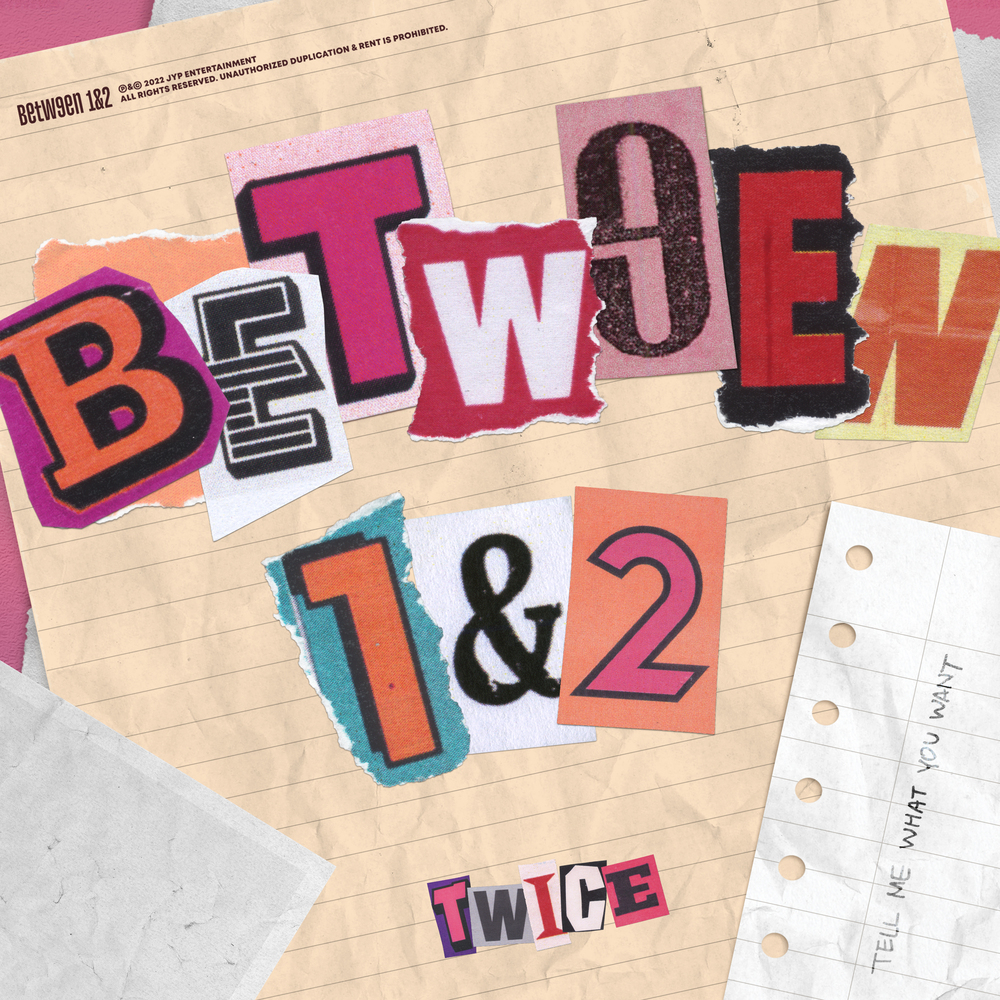
50.
TWICE – “When We Were Kids”
[JYP]
At this point, it’s safe to declare TWICE one of the all time great K-pop groups. While all too many groups enjoy their blissful time in the sun for far too short a time, these ladies have consistently kept it coming since their debut, cranking out release after release after release each and every year as if it’s the easiest thing in the world. For their latest Korean release, Between 1&2, the clear stand out comes very last. Dahyun again proves herself one of the group’s key members by writing one of the more emotive songs in their catalog to date. “When We Were Kids” mines a universal feeling, that never ending desire we all share to return to our youngest years. “I wish I could meet the younger me,” the group sing. Don’t we all. – Chase McMullen
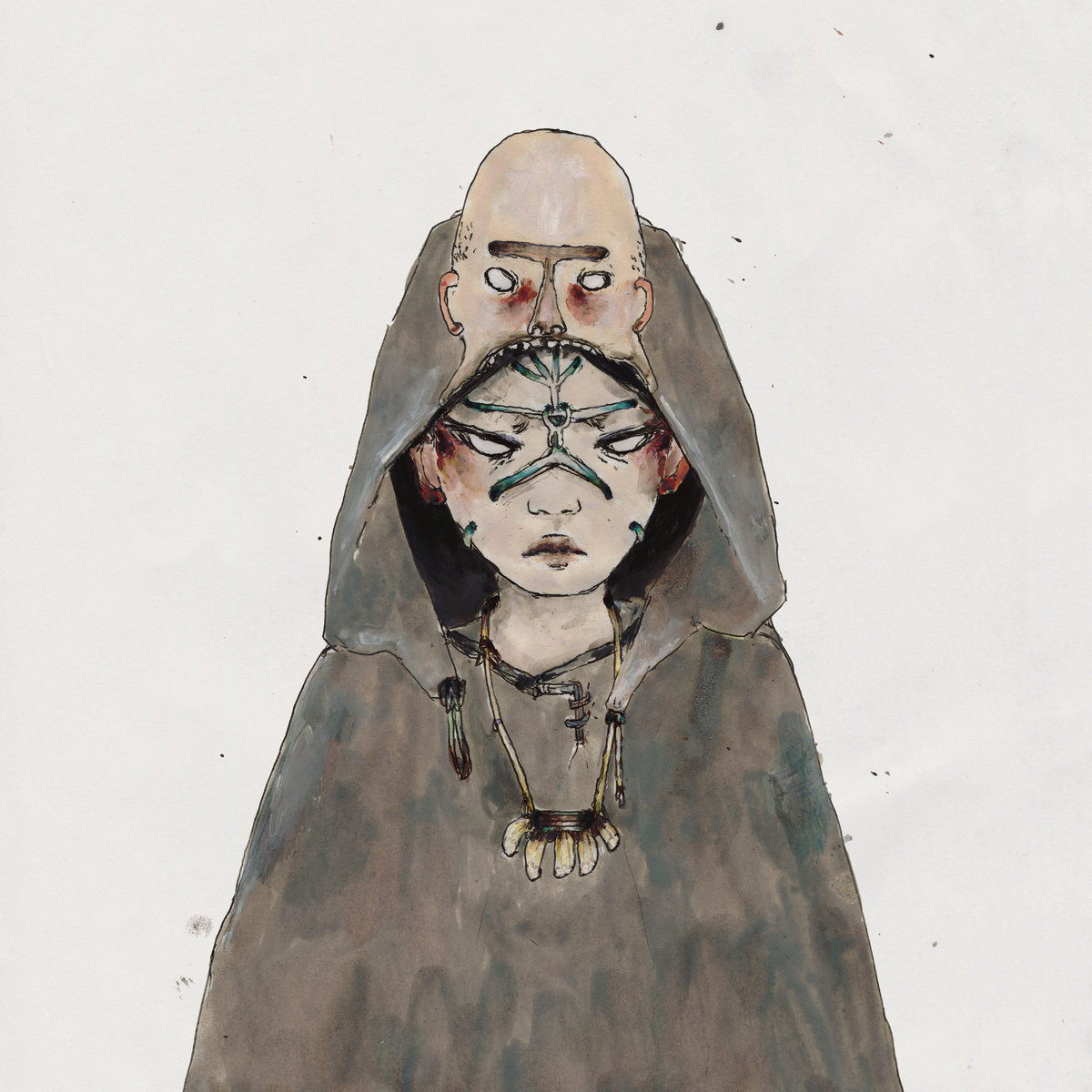
49.
Burial – “Antidawn”
[Hyperdub]
Antidawn, this year’s album-length EP from William Emmanuel Bevan, aka Burial, shows the British artist working with notably diaphanous textures and ambivalent tones. Nowhere on the album are Bevan’s abilities to toy with sonic and existential paradoxes more apparent than on the approximately nine-minute title song.
Minimal, elegantly atmospheric, and replete with urban glitches as well as ethereal drones, the track brings to mind an astronaut drifting in space, a soul wafting toward its next life, a hungry ghost lost in the realm of craving, a star emerging, ageing, collapsing into its nova. Mostly ambient, the track includes strategically placed lyrics that reiterate a sense of displacement (“I’m in a bad place”) and unbelonging (“I’m not your kind”), though the final lines (“Let me in / tonight I know it’s coming”), buoyed by airier and brighter synth-work, suggest the possibility of transcendence or enlightenment. “Antidawn” speaks to the emocognitive spaces we occupy and the multifaceted nature of experience. Then again, its austere gestalts conjure the 13-billion-year history of space, pointing to the ultimate inconsequence of human life. – John Amen
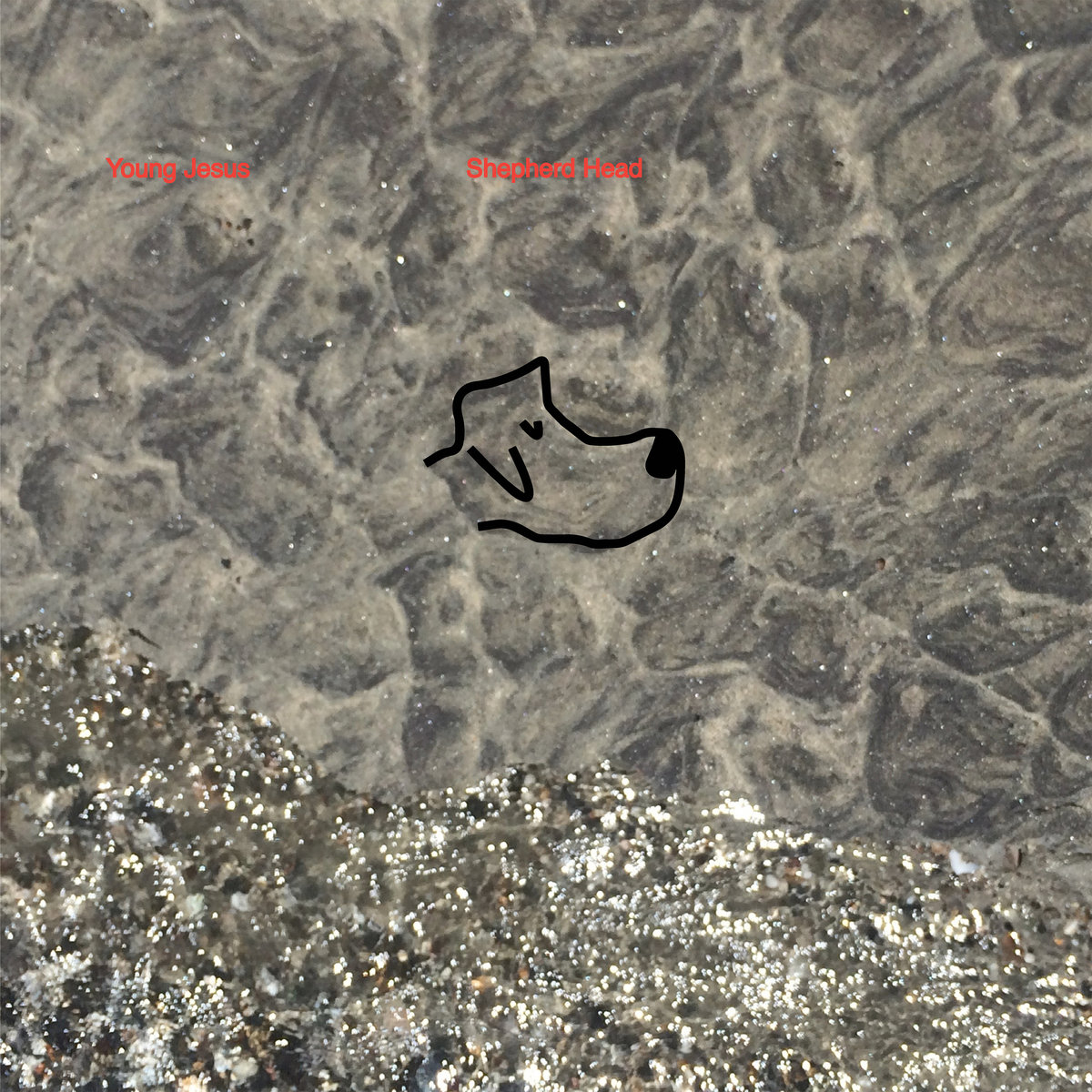
48.
Young Jesus – “Ocean” (feat. Tomberlin)
[Saddle Creek]
“Ocean” finds Young Jesus linking up with a Saddle Creek labelmate and another spiritually inquisitive songwriter in Sarah Beth Tomberlin. It’s an upbeat song on first impression, with a bright buzzing melody and bubbling rhythms, but John Rossiter’s forlorn voice soon clues us into the song’s themes of soul-searching and desire for purpose. “God is just the ocean where I’m lost” he intones, Tomberlin’s voice harmonising beautifully to accentuate the universality of these uncertainties. He may not know what higher powers there are, but he knows that he needs to commit himself to life; “Go / Give your life unto the weave / To the fabric and the seam,” Rossiter and Tomberlin gorgeously assert. It’s a gentle but overwhelming track from an act who consistently walk a unique line of being life-affirming and life-questioning – and make it continually compelling. – Rob Hakimian
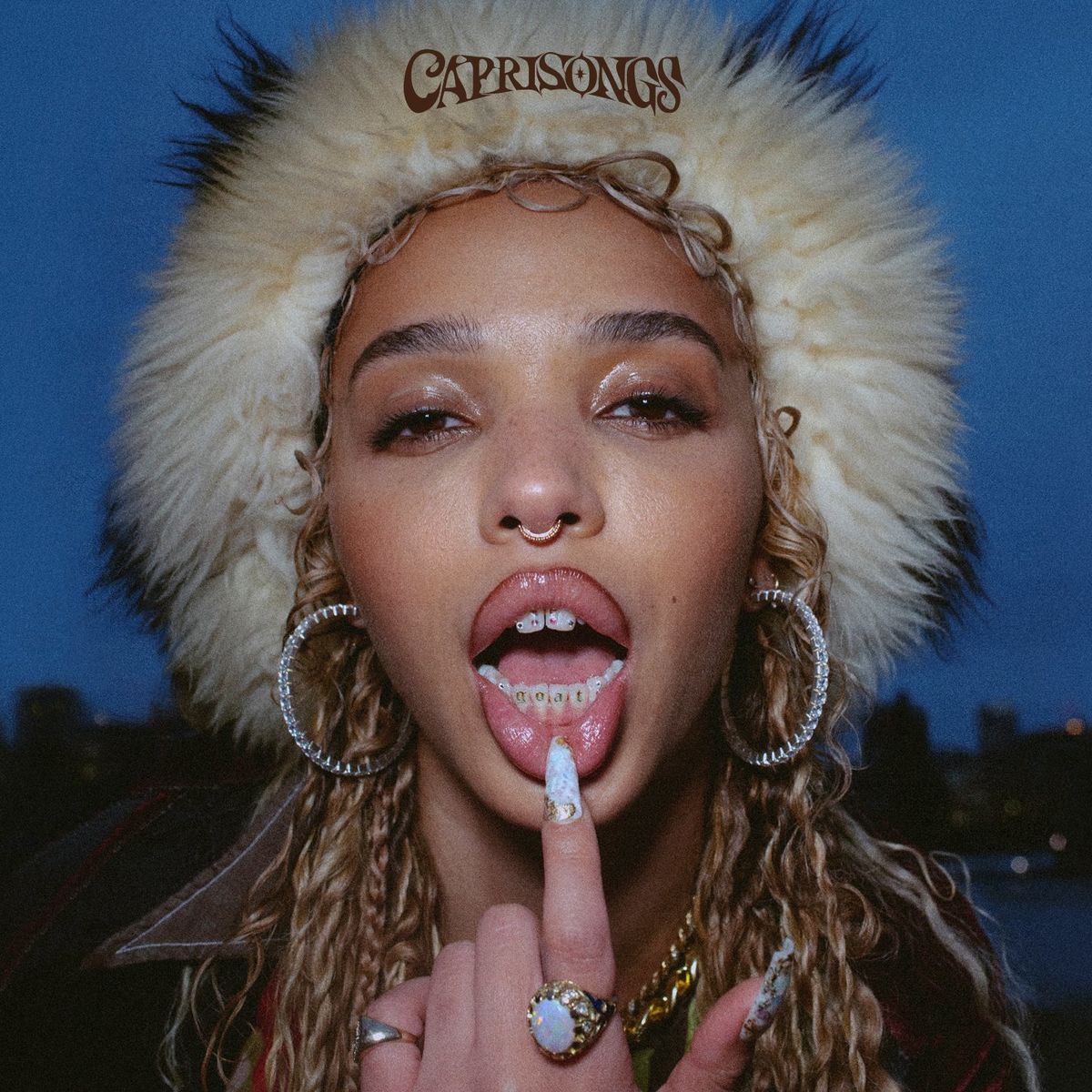
47.
FKA Twigs – “papi bones” (feat. Shygirl)
[Young]
FKA Twigs‘ Caprisongs mixtape is a celebration of the artist’s physical freedom, rediscovered flirtatiousness and diverse artistry. “Papi Bones”, which sits at the centre of the collection, is the most overtly confident and sexy song on the collection, overflowing with “Caprisun energy” that brings to mind sweltering summer days, the streets filled with people frolicking with minimal clothing, eyeing each other up for a good time.
The panting man sampled at the top of the song talks about how a “gyal that can dance… Lets herself be free and so expressive and just don’t give a fuck… Uh, there’s nothing more sexier than that” – and “papi bones” is proof that Twigs can be that woman when she wants. She’s also aided by Shygirl, who in recent years has risen to be the very embodiment of body confidence and overt sexuality in pop music, and together the two young women know exactly how to rev the engines of everyone in the vicinity. – Rob Hakimian
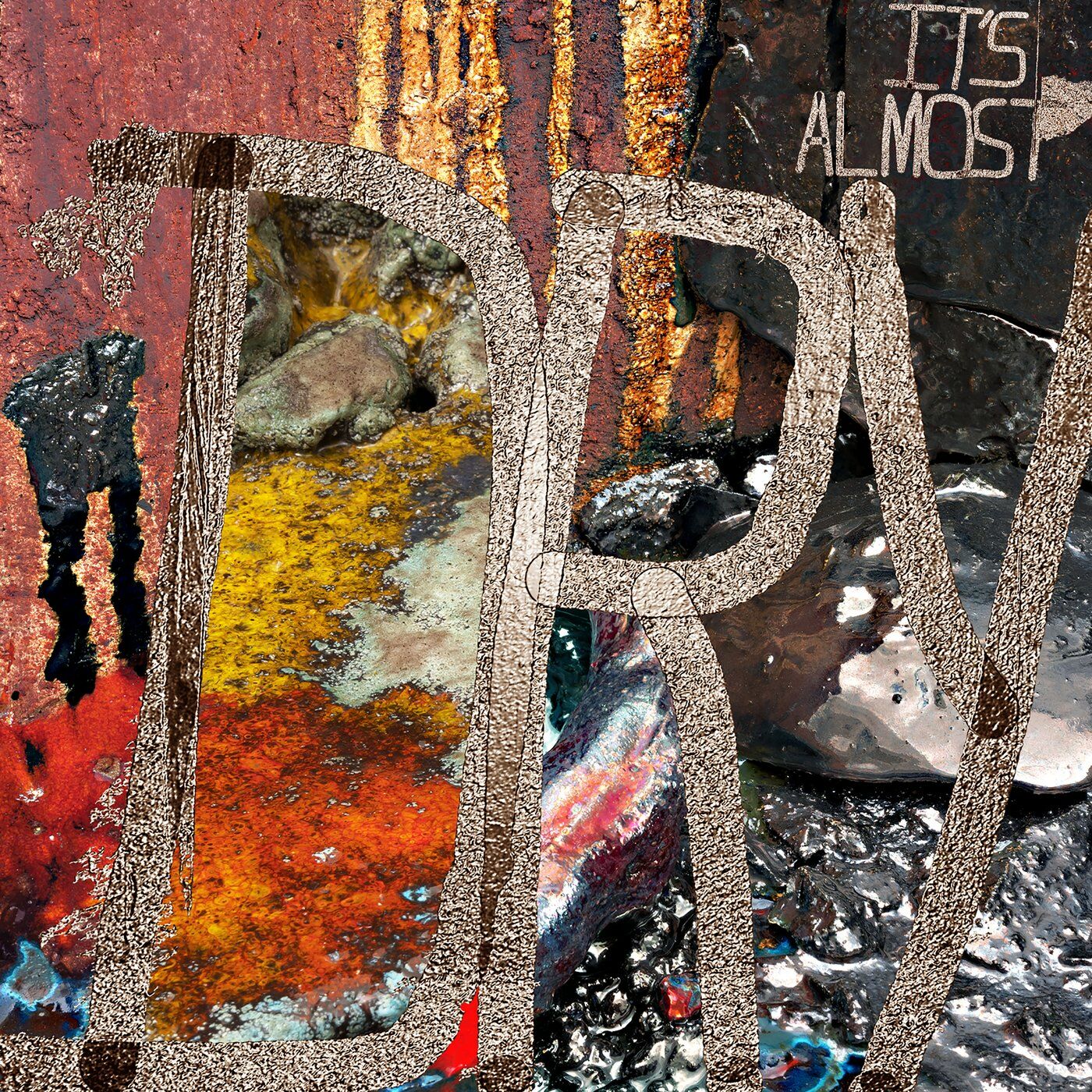
46.
Pusha T – “Let The Smokers Shine the Coupes”
[G.O.O.D. / Def Jam]
This beat shouldn’t even exist, it just goes that hard. Needless to say, Pusha himself matches it with aplomb, declaring himself “Cocaine’s Dr. Suess”. There really isn’t much more that needs to be said, it simply slaps. Aggressive and dominant, it’s Push and Pharrell at their very best, the sort of song that makes you want to drive at 2 miles an hour down the street with the windows down just so everyone can hear exactly what you’re bumping. It’s sheer confidence in song form. – Chase McMullen

45.
Plains – “I Walked With You A Ways”
[ANTI-]
Aside perhaps from love songs themselves, is their a topic more explored in music than the break up song? Somehow, Plains have made the concept feel novel on “I Walked With You a Ways”. Gone is any sense of anger, regret, or even sadness. There is simply gratitude for the time spent together. Even for the most heartbroken among us, the song offers shelter. Regardless as to how things ended, the person you leave behind has improved your life in some way. This song serves as a deeply essential reminder of that. It’s all too rare. – Chase McMullen

44.
Björk – “Her Mother’s House” (feat. ísadóra bjarkardóttir barney)
[One Little Independent]
There was a strong argument to be made for other songs from Fossora, Björk’s 10th record, to be put on year end lists. “Atopos” was a weird and beguiling mix of yearning phrasing and honking clarinets. And “Ancestress” is a beautifully landscape-sized piece about her mother’s passing. But in the end, the album’s closer, “Her Mother’s House”, takes the top prize.
An almost impossibly-delicate duet with her daughter ísadóra, the song follows Björk as she comes to terms with letting her daughter go, so she can grow as an adult and live her own life. But she doesn’t let her leave without understanding the level of love Björk has sent her way: “The more I love you / The better you will survive” she sings, with her daughter offering agreement. And despite it all, Björk knows full well that no matter what she says, she’ll still be sad to see her kid go and not need to be home forever. It’s a sweet and lighthearted sentiment to end a rather heavy record.
The song is also a wonder of instrumentation. The synths and woodwinds puff up like clouds, prodding us along, and there’s a repeated sample running through of a descending, light-treated vocal that is simply one of the smartest vocal samples Björk has ever put into a song. It’s icy without feeling austere. It sounds a little like “Anchor Song” with its spacious, pulsating chords, and she sings “Undo, undo, undo” towards the end, harkening backwards through her career as she puts a cap on a milestone record. It’s her best closer since “Unison”, and I think it will stealthily become a true classic in her canon. – Jeremy J. Fisette
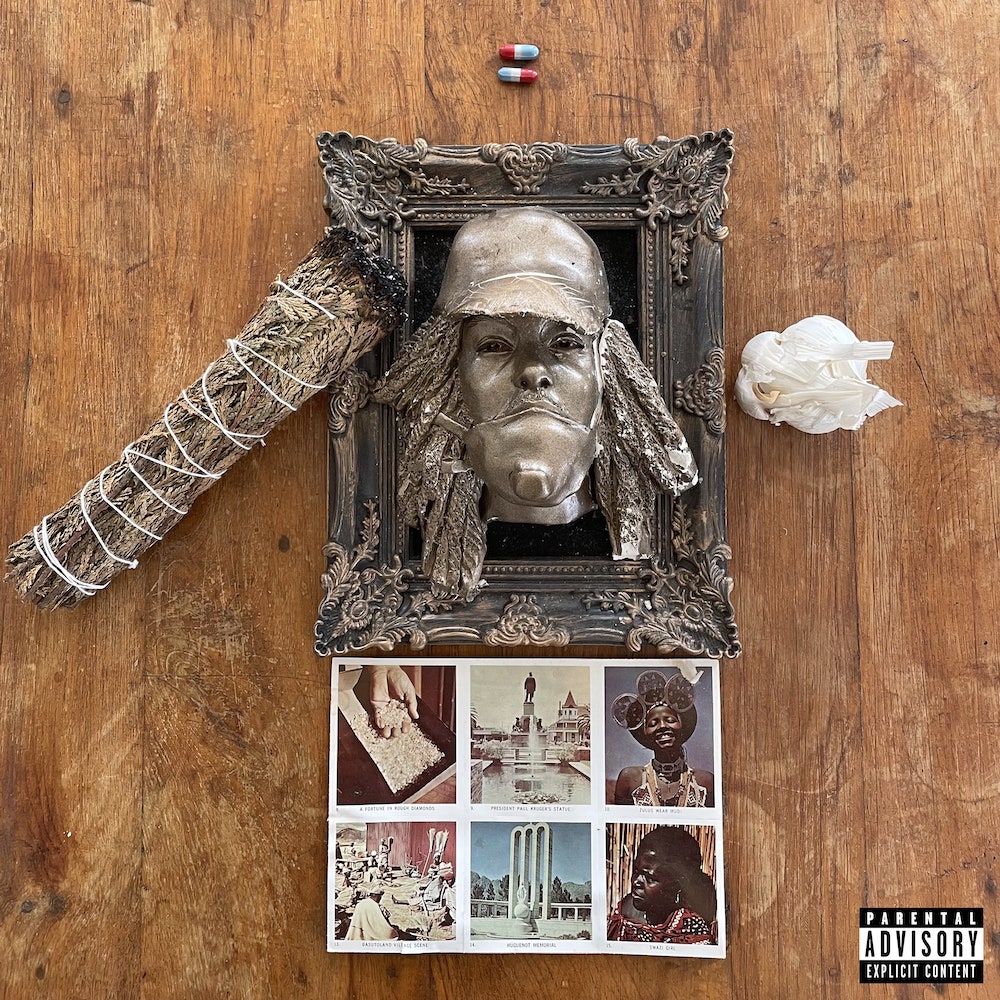
43.
Earl Sweatshirt – “Fire In The Hole”
[Tan Cressida / Warner]
On the bluesy finale to his fourth album Sick! Sweatshirt slows time, in the most un-Earl way. A simple, lingering, shimmering guitar that stretches longer than even his bars go. Representing the extended time period of COVID, “Fire in the Hole” chills the listener to an icy piano finish. It’s Earl’s most contemplative track, with shoutouts to AKAI SOLO and references to the pandemic and broken relationships, wounds that need healing – “Fire in the Hole” covers a lot even though half of it is a wordless instrumental. Such was the brilliance of Sick!, an album where Earl proves he can do more with 24 minutes than some rappers can do with an entire career. – Tim Sentz
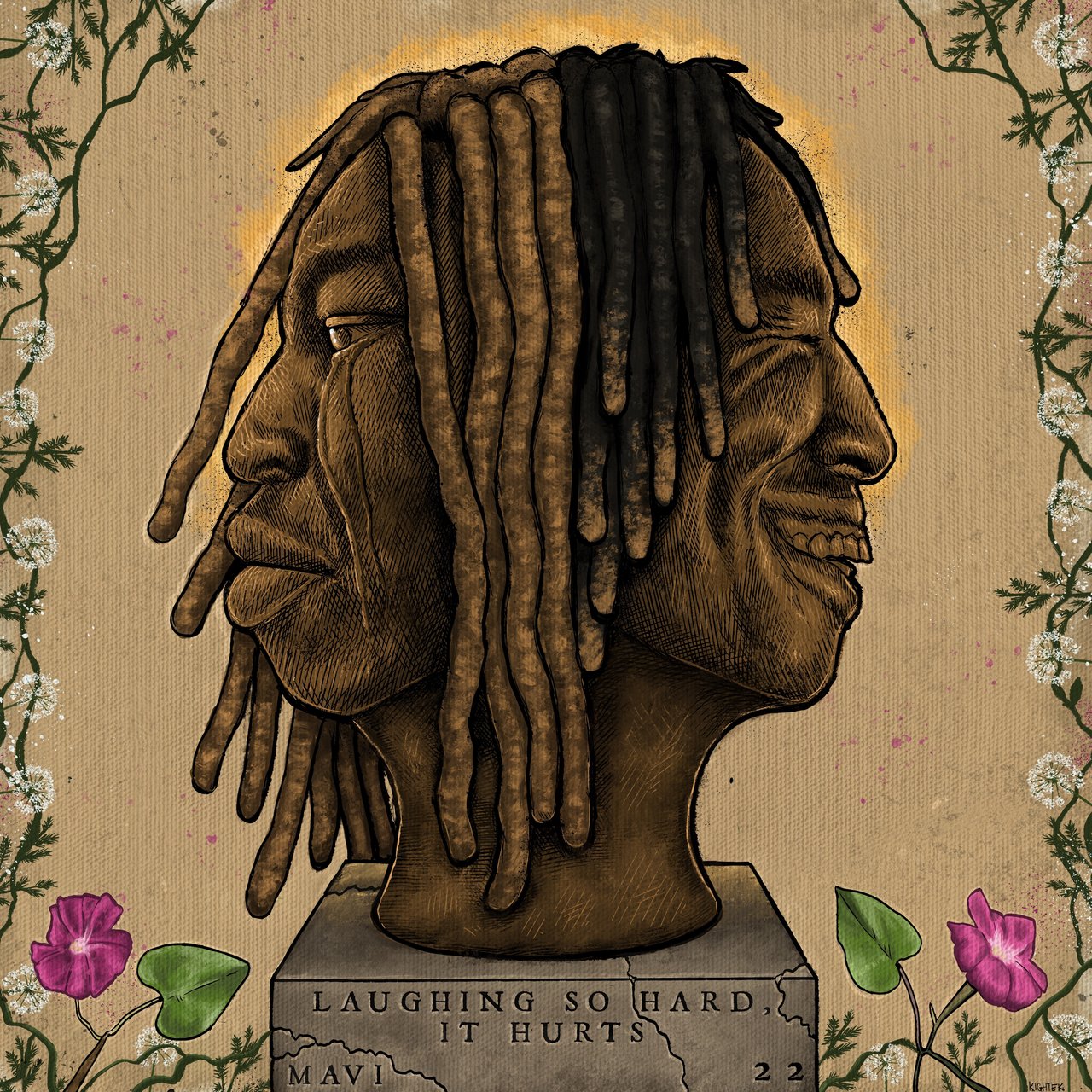
42.
Mavi – “Doves”
[Mavi 4 Mayor Music]
Mavi is the definition of an old soul. He raps like he’s fatigued by the very act, it’d be easy to mistake his style for laid back, yet it’s anything but. It’s pure exhaustion combined with an ever-growing maturity. Plenty of rappers twice his age lack the perspective and focus he brings to his music. His latest album, Laughing so Hard, it Hurts broadens this view, digging ever deeper into every nook and cranny of his, if you will, soul.
Ever so subtly, yet of supreme importance, the album is one of heartbreak. When he utters, “I don’t think I’ll ever fall in love again, I’m cool,” on “Doves”, it’s tossed off as nearly an aside, a blip amidst the gnawing pain that clouds the LP. It may well prove untrue, but the grace with which he accepts his loss is bracing. It’s the feeling of being in the doldrums and simply accepting it. – Chase McMullen

41.
Backxwash – “VIBANDA” (feat. Morgan-Paige & Michael Go)
[Ugly Hag]
Has there been another track this year as exasperated, frustrated, and intensely repentant as “VIBANDA”? Has anyone else matched samples of Mozart’s “Lacrimosa” from his Requiem in D Minor to urgent, thunderous industrial clamour? Has anyone else brought in guitarist Michael Go to add paranoid screeches and depth AND Morgan-Paige to add contrasting heavenly touches of piano to the darkness? The answer to all these questions is obvious because no one else is Ashanti Mutinta, making a mantra of “I’m a mess / I’m a dog / I’m a pest / I need help.” There’s not a song as stirring and brilliantly breathtaking as Backxwash‘s “VIBANDA” this year that conjures so much darkness – and also tries to summon a beam of light amidst it all. – Ray Finlayson
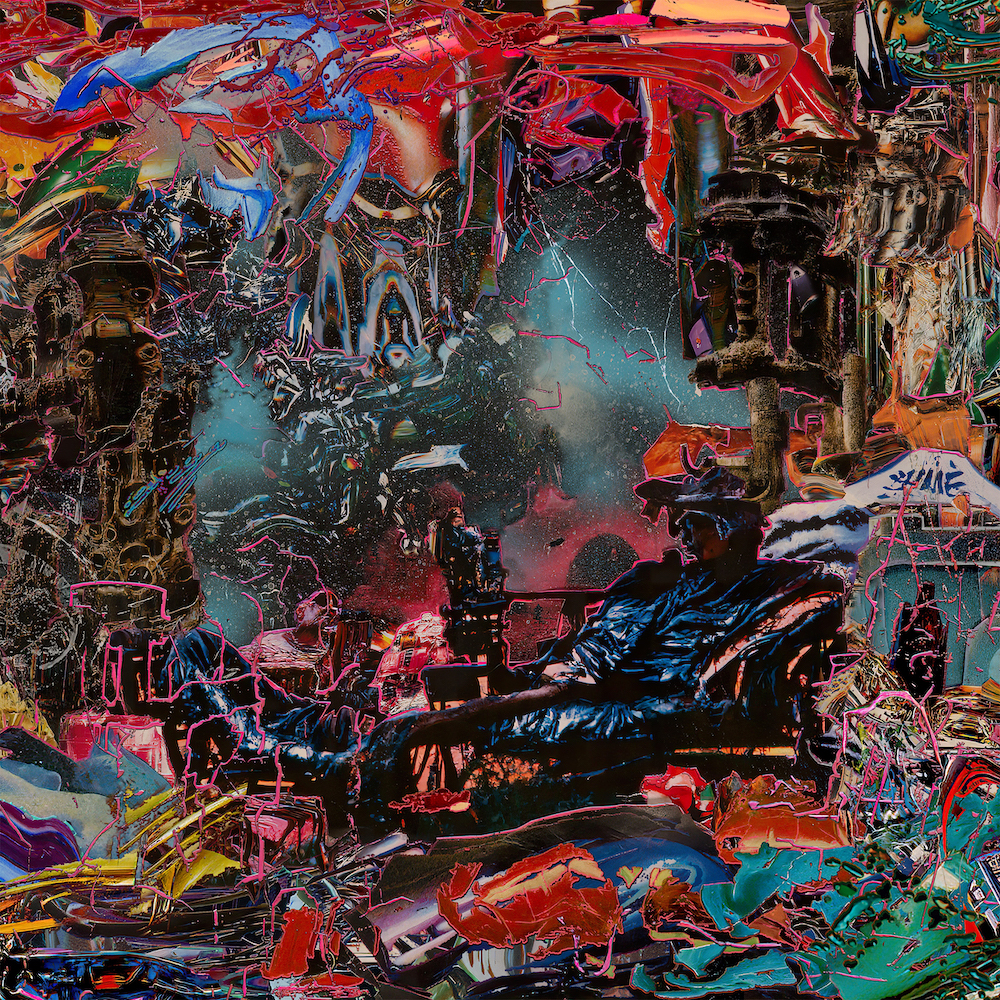
40.
black midi – “Eat Men Eat”
[Rough Trade]
Cameron Picton’s contributions to black midi are always so meditative and rich with visuals. On the band’s previous albums, Picton was front and center for the band’s lesser chaotic moments, quietly biding his time, possibly waiting for his defining moment on Hellfire, “Eat Men Eat”, the grotesquely vile album highlight.
What follows the jazzy intro is a descent into madness by way of a deceptive mealtime for the protagonists. Hellfire’s that “action film” whereas Cavalcade was the “drama,” and what better way to set the stage than with stomachs bursting and fluids being mined for wine? black midi definitely remain unpredictable, but with Hellfire they push their listeners’ durability, and “Eat Men Eat” is the point of no return. – Tim Sentz

39.
Hikaru Utada – “Somewhere Near Marseilles”
[Sony Music Entertainment]
A partnership between legendary Japanese-American pop star Hikaru Utada and critically acclaimed British experimental producer Sam Shepherd (aka Floating Points) may not have been one that many expected to see, but seeing how perfectly the two minds meld on “Somewhere Near Marseilles” makes you think there could easily be a whole album of this that would be an instant classic.
Among the three tracks Shepherd produced on the Japanese star’s new album is this 12-minute pop-house epic. Despite the extended length, Utada shows their pop intelligence as they don’t try to fill the whole song with words – they boil it down to the simple desire and lust, repeating their physical and emotional cravings and letting the production do the rest.
“Somewhere Near Marseilles” is the tale of one person wanting to find another in a foreign city, where they can get lost together. “I’m in London, you’re in Paris / So shall we try to plan a rendezvous vacay” Utada tempts. Far from being the mid-point between those two capital cities, Marseille is quite a distance from both, but as Shepard’s oozing, stylish production stretches out with motorik class, you can imagine the two lovers on trains or planes, their hearts beating anticipatorily in time with the propulsive rhythm as they dream of sunshine, seaside and each other’s bodies; “I’m gonna give it to you / I’ll get a room with a view,” Utada promises. – Rob Hakimian
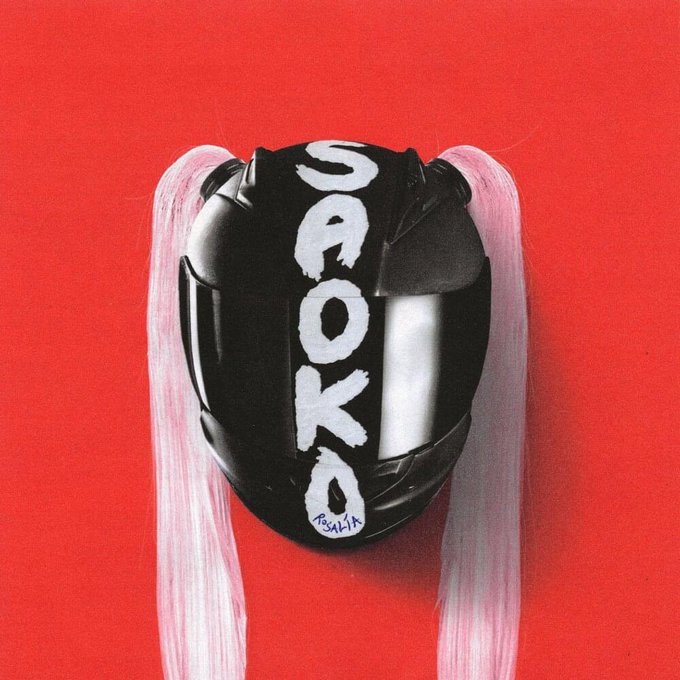
38.
Rosalía – “Saoko”
[Columbia]
Rosalía’s journey to stardom has been a constant transformation. It’s impossible to know what to expect of her, and for any who thought they had her figured out “Saoko” came as a bold statement of Rosalía’s refusal to fit into a box.
From the siren-like synths to the overly processed vocals to her fierce delivery, Rosalía is on fire. With production work as far removed as possible from what she’d hitherto shown, the singer fully lives up to her words “Yo me transformo” (I transform myself). Even the non-Spanish speaking section of the audience can enjoy the loose yet intense percussion and the way in which each part of the song differs yet coalesces with the rest. All at once, Rosalía delivered some of her most unserious and fun pop, rose to the level of Latin icon Daddy Yankee whom she emulates, and blazed a new and unique artistic route all her own. – Lucas Martins

37.
Preoccupations – “Ricochet”
[Self-released]
There’s a strange euphoria that accompanies entropy. Possibly humanity’s embrace of the inevitable, this special sense of cosmic pathos is easy to find, but hard to create without rolling into nihilism. Always one of the most articulate post-punk bands, Preoccupations found a poetry for their own observations on climate change and societal downfall. “Staring back at me with broken eyes / Like empty stalls at abandoned shopping malls / Ricochet and Decay”. It’s a strange beauty that Matt Flegel conveys, when he describes how “we run with all our might into the surveilling setting sun” and lambasts “they’re selling t-shirts at this crucifixion”, as images of apocalyptic events collide with consumption.
Complemented by one of the most memorable punk compositions of the year, the song slowly builds towards a rousing finish, where Flegel introduces a new bass line and to hammering drums declares “Everything that I touch / Feels like the bitter end / And it’s radiating / Effortlessly graceful / And it’s closing in”, finally dropping individual instrumentation to just leave hammering drums that drive on, without company.
Contrasting the intro – the electronic hum of guitar strings aping lonely radio-waves – the dry beat seems like a barren vision of a lifeless soil. But what’s most alarming in Flegel’s vision is how readily humanity marches into this extinction, how even the last bit of mankind’s downfall is glamorised and commodified, until only skeletons remain, with nothing left to consume in the aftermath. It’s to the band’s credit that they’ve managed to turn this immense sense of dread into blissful sonic architecture when some critics had just started to write them off – they’re back, on the top, at the end of all things. – John Wohlmacher

36.
Porridge Radio – “Back To The Radio”
[Secretly Canadian]
Porridge Radio employ only two chords on Back To The Radio, yet each subtle change from one to another is imbued with a pang of yearning; the perfect canvas for Dana Margolin’s plaintive sketch of pressure and loneliness. As the opening song proper on Waterslide, Diving Board, Ladder To The Sky, it is the first indication of the album’s quality, threatening to heighten Porridge Radio’s already impressive standards. While the remainder of the record fulfils expectations, the simple melodies, crunching guitars and cathartic climax of “Back To The Radio” make it a difficult tune to surpass. With honesty and humility, Porridge Radio remind us that the desire to escape can be just as powerful as the desire to embrace. – Eddie Smith

35.
Vince Staples – “When Sparks Fly”
[Blacksmith/Motown]
Leave it to Vince Staples to write a love song from the perspective of a gun. It’s all too easy to miss where the speaker is actually coming from, but “When Sparks Fly” is one of Staples’ most brutally honest songs to date. With a soulful beat, it explores the weapon missing its owner, and ultimately reflects on the hopelessness of the situation. “Know that you won’t tell / that’s why I’m afraid / you’ll probably never get to see the light of day,” he mournfully raps, representing a reality all too omnipresent in the society we’re stuck within. – Chase McMullen
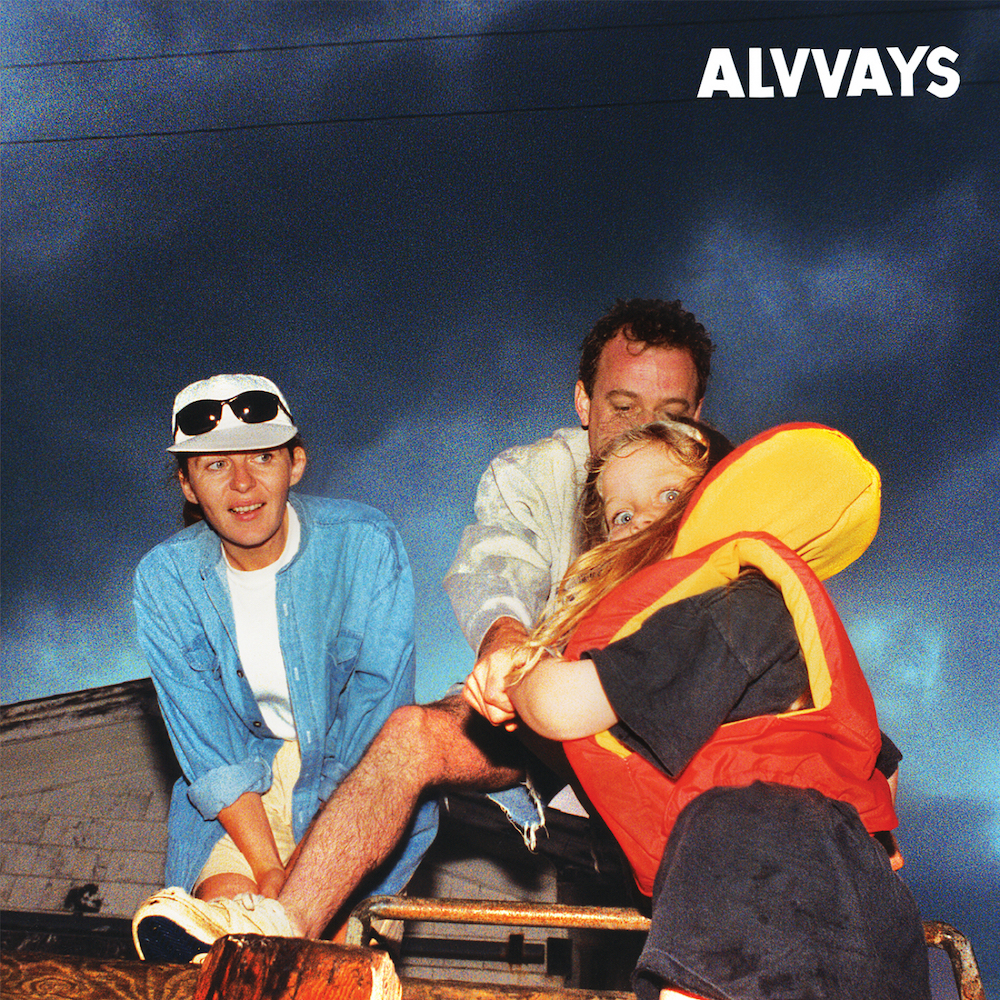
34.
Alvvays – “Pharmacist”
[Polyvinyl]
The syncopated drum beat that opens Alvvays‘ “Pharmacist”, nestled under Molly Rankin’s pensive voice, evokes the ticker of a time bomb. And sure enough, seconds in, the song explodes into a swirl of guitar shreds and echoing vocals. “Pharmacist” centers around the oh-so-common story of hearing that your ex has found someone new. Only here, it’s the ex’s sister that delivers the news, the sort of through-the-grapevine gossip that feels uncommon in our era of social media FOMO. This only seems to make the news harder to take; not only is Rankin’s ex happy with someone else, she’s seeing others be happy for them. “You know it happens all the time, it’s alright,” Rankin sings, attempting to will herself into a state of acceptance.
It’s a painful revelation that unwelcome news can drag any emotional journey 10 steps backward. Alvvays embrace this reality nonetheless, blending noise and melody to create a song that’s at once familiar and fresh, an approach that lies at the core of Blue Rev’s resonance. “Pharmacist” ends with a blistering guitar solo that mirrors that dizzying blend of nostalgia and heartache, the kind we’ve all felt before, the kind that happens all the time. – Carlo Thomas
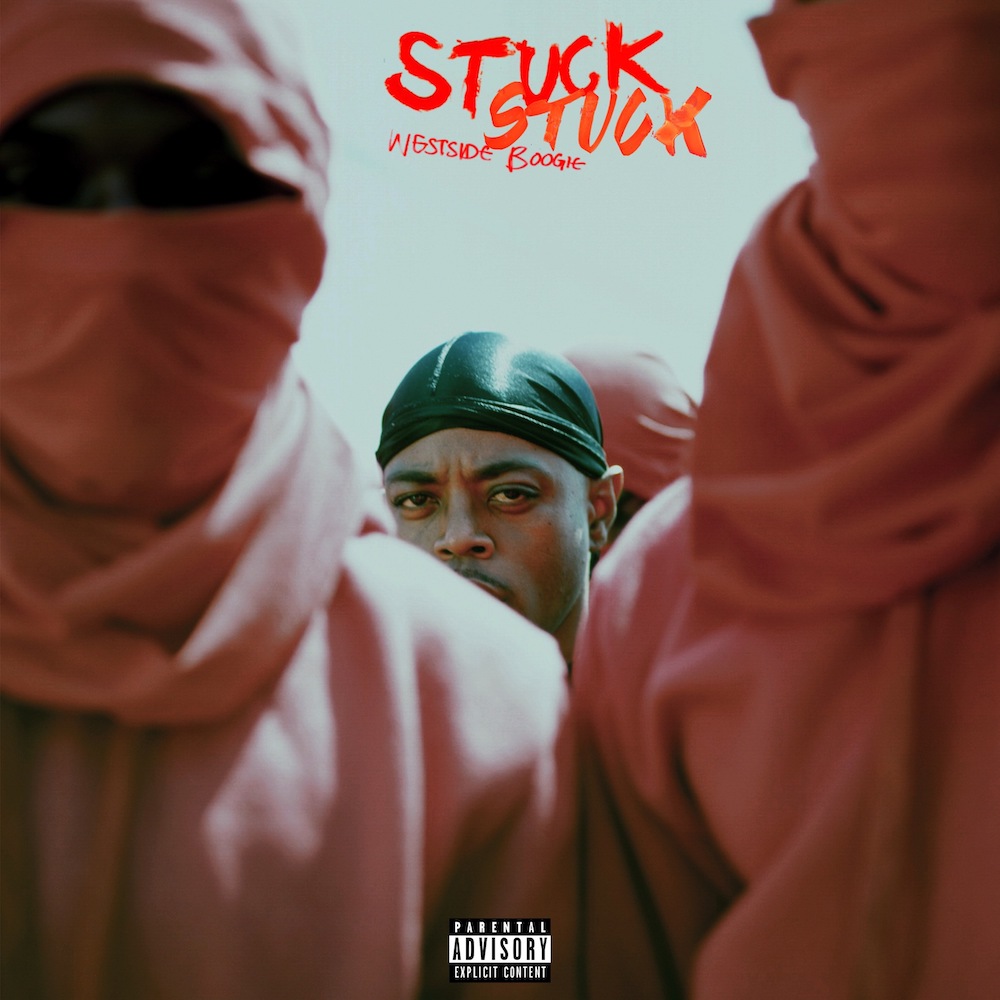
33.
Westside Boogie – “Stuck”
[Shady Records]
If there’s one thing Westside Boogie excels at, it’s bleeding to his core. To be sure, the concept of being unable to leave behind one’s roots as they are on the come up has been explored to death in hip hop, but Boogie manages to make his pain feel novel and essential. “Stuck” is all pain and feels lost, when he utters “caught me lackin’ in the party / I swear I can’t sit up straight,” the words sting with the lash of anyone who’s dealt with their problems the wrong way. As the song progresses, he delves into a voice previously unheard in his oeuvre, deepening his voice and letting the sound surround him. Ranging from love to his mother to pure devastation, it’s a confessional that hits with the weight of an anvil. – Chase McMullen

32.
NewJeans – “Attention”
[ADOR Co.]
Shockingly, in an industry dominated by teasers, secrecy and the slow reveal, nothing seemed more unprecedented in K-Pop than a surprise track drop by the newly-debuted girl group NewJeans.
The track in question is the effortlessly addictive “Attention” – a summery, pared-back, nostalgic R&B bop that perfectly encapsulates the fun feeling of having a crush. Opening with a manipulated vocal sample and claps, the song expands into a breezy tempo with minimal keyboard chords underpinning the entire thing. What’s striking in this track that made it an instant hit is how at ease it is with its simplicity. At its loudest, the chorus expands the production into a shimmery euphoria that ties all the elements together. The girls’ vocal performances are effortlessly cool and confident. And perhaps the highlight of track is the pre-chorus refrain of “Drop the question / Drop the, drop the question / Want attention / Wanna want attention” that instantly lodges itself in the brain.
Perhaps as prophecy, “Attention” ensured that South Korea and listeners of K-Pop around the entire world gave NewJeans exactly that. This group took a risk by dismantling K-Pop’s tendencies towards excess and instead, delivered a track that is straightforwardly charming, catchy and pure. – JT Early
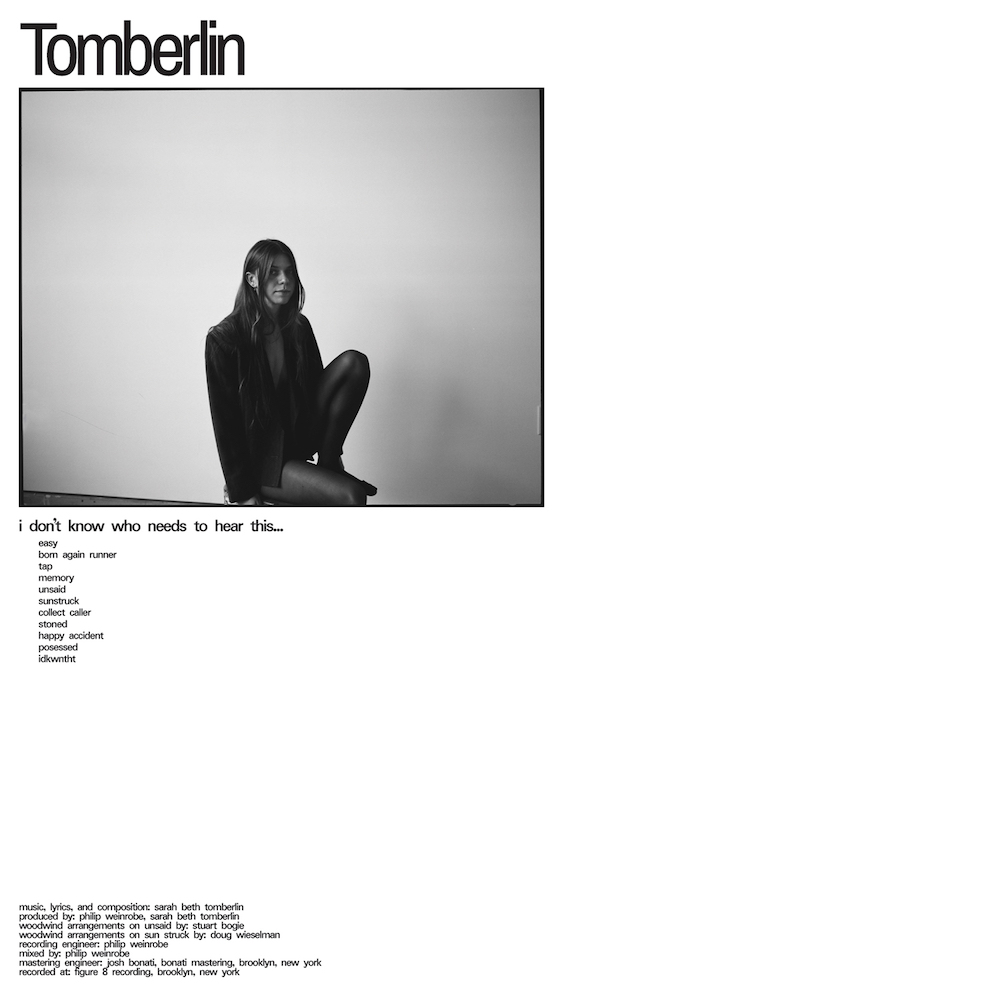
31.
Tomberlin – “happy accident”
[Saddle Creek]
One of the best melancholic songs of 2022, “happy accident” finds Tomberlin in introspective and pessimistic mood. A sense of fatalism and the inevitability of doomed romance is at the song’s vulnerable heart, and the opening line of “What’s the point of this if I know how it ends?” centres the narrative as we travel with her to find out. The song twists and turns before a resolution is reached when there’s a more upbeat, relaxed state of mind with the refrain of “What’s the point of this? / I don’t know how it ends”. In the course of almost six minutes, Tomberlin sees her heart give in to the true pleasures of love when emotional guards are let go and we can be vulnerable with someone else. A rare state to exist within. – Todd Dedman

30.
Open Mike Eagle – “79th and Stony Island”
[Auto Reverse]
The intersection of 79th St. and Stony Island Ave. is one Kanye West might have known well. It’s the border of West’s South Shore and the more-stable Chatham ‘hoods and also the location of an interstate ramp offering the riches of downtown or the Skyway out of Chicago altogether.
For Open Mike Eagle, West looms over “79th and Stony Island” and he worries that no matter which path he chooses he might lose his mind, too. He raps, “I stay woke / I don’t sleep great,” and that post-pandemic, “I still got the same worldview / A brain full of old-school rules.” The production is ironically nostalgic for a place and time later revealed to be a monster factory, but the song is entirely about the present and the dread of what might be around the corner. – Steve Forstneger

29.
Caroline Polachek – “Billions”
[Perpetual Novice]
Watching Caroline Polachek perform live is a joy, because aside from her music being so damn good, you’re seeing her approach the stardom she seems destined for: on stage she absorbs the spotlight while a crowd of eager 20-year-olds scream with admiration (“YES KING BITCH!” was a memorable soundbite I caught last year). Even relatively subdued tracks like “I Give Up” rattle with arena-shaking energy. But when I saw her perform the then-unreleased “Billions”, a crystallized hush came over the crowd.
“Billions”, then, is no banger. It’s the sound of someone pointing to the world’s overwhelming accumulation of things with childlike wonder. The Trinity Children’s Choir in the second half makes it feel all the more awe-inspired. Of course, it’s still ridiculous and glam – “sexting sonnets”, for real? But then of course it is, it’s Caroline Polachek. And we love her for it. – Ethan Reis
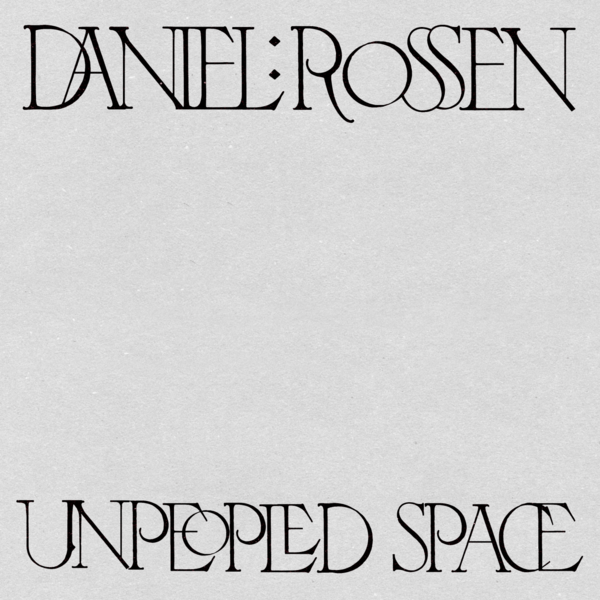
28.
Daniel Rossen – “Unpeopled Space”
[Warp]
When I interviewed Daniel Rossen in light of his full-length solo debut after being a core member of indie rocks stalwarts Grizzly Bear for so many years, we had a lot to talk about. His record, You Belong There, is a puzzling gem of intricate folk and skittering percussion. But one thing I forgot to ask him was how in the world he gets his acoustic guitars to sound like that.
“Unpeopled Space”, a six-minute jewel that sounds a little like his main gig while also sounding like its own complicated animal, is full of those guitars. You know those guitars — those Rossen guitars that just sound different. The song starts off with just those spare guitars and some humming, before the drums come scuttling in, and we’re off. The pace doesn’t settle from there, even as bassoon and other barely-identifiable instruments enter the frame (most of the instrumentation on the record was played by Rossen himself, a true renaissance man). All the while, Rossen sings in his plaintive, signature voice, about the failure of words to express basically anything, and the humorous futility of simply being here, being human. It’s a bittersweet song, befitting of the epic-in-miniature scope that Rossen is so adept at crafting.
But seriously: how does he get his guitars to sound like that?! – Jeremy J. Fisette
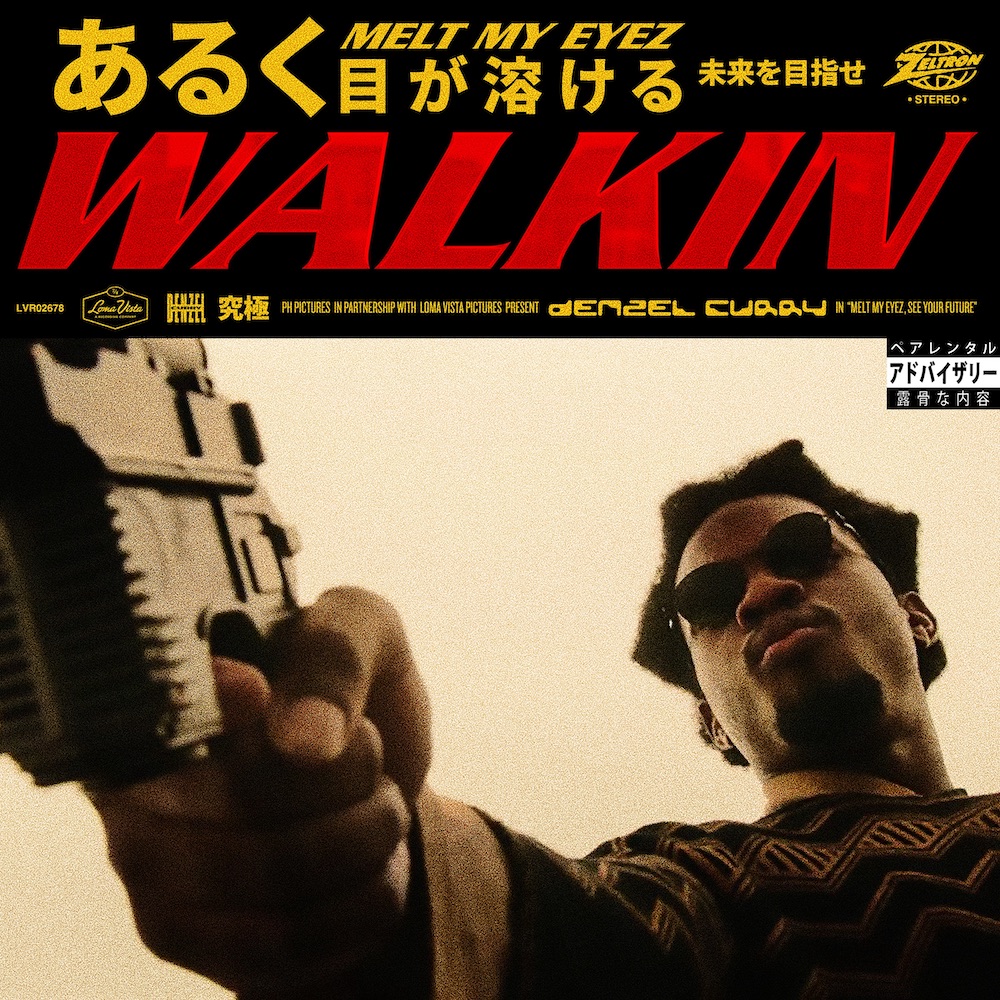
27.
Denzel Curry – “Walkin”
[Loma Vista]
There’s so many wild and weird layers to Denzel Curry, the man’s mythology and wild talent, that it’s hard to keep track with all the multi-textural play. Here’s an interesting one: “Walkin” is based on a sample of Keith Mansfield’s “The Loving Touch”, BUT that song uses the same vocal melody as “Pure Imagination” from the 1971 Hollywood adaptation of Willy Wonka and the Chocolate Factory! And there’s a direct link, both in the sound of Curry chewing up something during the song’s intro, and Gene Wilder sings: “Come With Me / And You’ll Be / In a world of pure imagination!” Curry’s walk looks a little rocker, as he’s with his back to the sun, observing the destructive quality of capital along his path! “Tradin’ softly on a path down the rockiest road / Life isn’t ice cream without Monopoly dough […] But when I felt it, my eyes melted / The selfish are constantly profitin’ off thе helpless”
Throughout Melt My Eyez, See Your Future, Curry is reimagining himself as a wandering vigilante – a gun slinging John Wayne, ragtag bandit Han Solo or Katana carrying Zatoichi. Behind the image hides a therapeutic approach to reflection. The character’s constant movement doesn’t evade accountability, but transforms the struggles surrounding him into learning experiences and lead to wisdom. It’s very Joseph Campbell’s “Hero’s Journey”, but also a testament to Curry’s willingness and strength to carry on. In the lead-up to the album’s release, the young musician opened up about his struggles with suicidal thoughts and depression, with healing his wounds and changing for the better – both for his own sake and those around him. “Walkin”, thus, is a bit of a mantra: just keep on walking, don’t stop, continue down that path. Here, the world of imagination and reality merge. Like Wonka, Curry has created a psychedelic and colourful world to reframe his own healing as a social experience. With its gorgeous flow and defiant lyrics, it’s an inspiring hymn and a constant reminder that the path is just as important as our destination. – John Wohlmacher
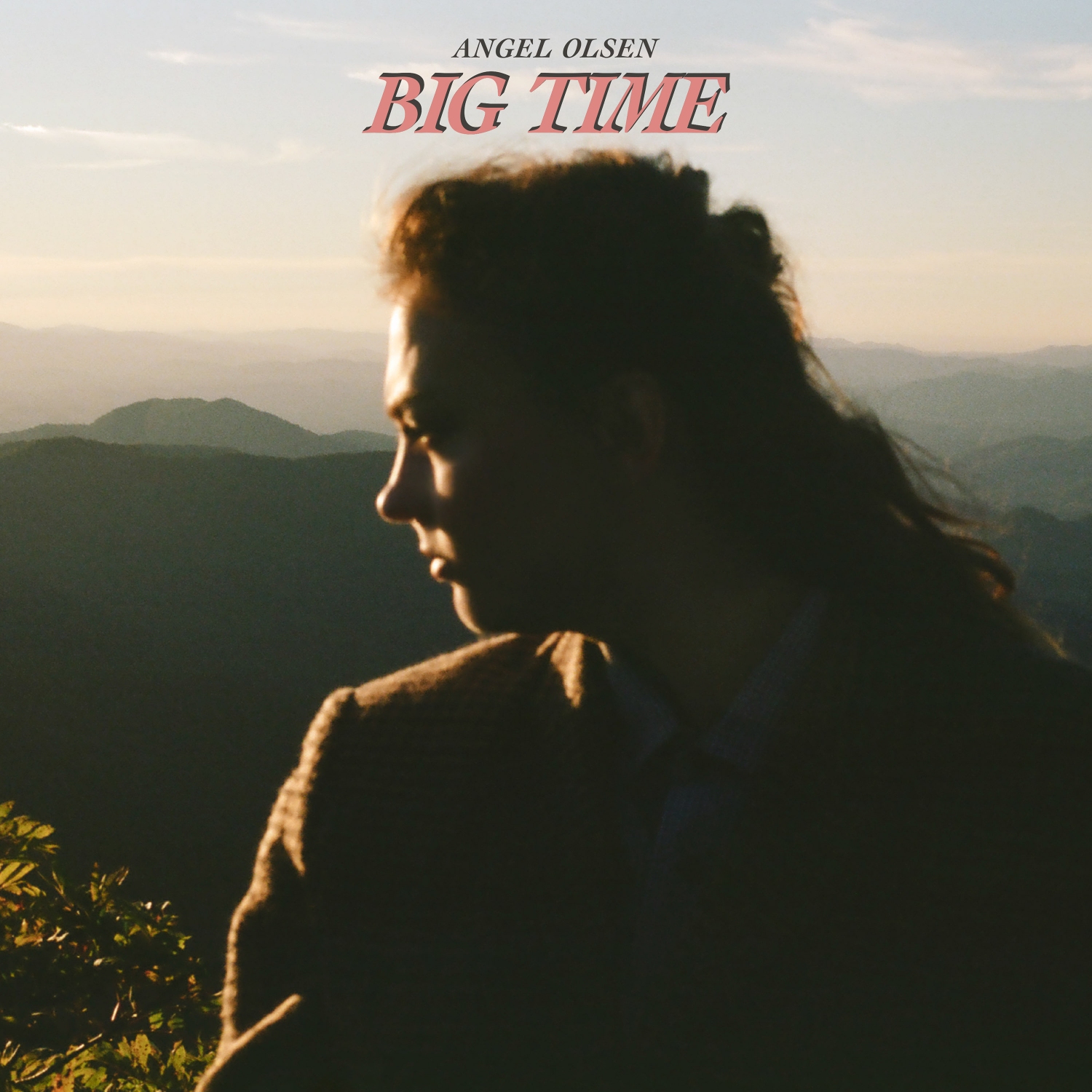
26.
Angel Olsen – “Big Time”
[Jagjaguwar]
“Big Time,” the full-on country title track from Angel Olsen’s latest album, blooms with sincerity. “Good morning kisses, giving you all mine,” she croons to her lover and then gushes over them all day along (“Lay in the tall grass, talking with your eyes”). Olsen is in awe of her situation, an emotional state underscored by a sweeping steel guitar and ragtime piano keys. Only this wasn’t her plan. “Guess I had to be losing to get here on time,” she sings on the chorus. Listen to Olsen’s delivery, one of her most tender to-date. Far from admitting defeat, she sees the moment for what it is, a chance at true love.
“Big Time” offers an indispensable insight. Your life might not go where you expected, and you’ll certainly lose at times. But in Olsen’s view, losing doesn’t mean defeat. Make due with your losses and you’ll open yourself to new possibilities and new destinations. And who knows, maybe that destination will bring you the happiness you’ve been searching for all along. – Carlo Thomas

25.
Sudan Archives – “Selfish Soul”
[Stones Throw]
Sudan Archives’ Natural Brown Prom Queen is rightfully been a consensus pick at the top of year-end lists. The album symbolizes Brittney Parks’ definitive pop statement, without reeling in the iconoclast instincts that endeared her to the fringes. On “Selfish Soul”, Parks orates that all-embracing streak within the specific subject of Black beauty standards. Here she stands between the pressures of letting her hair grow out naturally and using weaves and extensions to meet the expectations of her surroundings (“If I wear it straight, will they like me more? / Like those girls on front cover”), ultimately finding comfort in the fluidity of her own image. The song marches on with celebratory fortitude – with Parks’ voluptuous violin hooks sashaying around the song’s thunderous beat. Like a futuristic parade float traveling at light speed velocity, ”Selfish Soul” leaves trite notions of what beauty should entail in the dust. – Jasper Willems
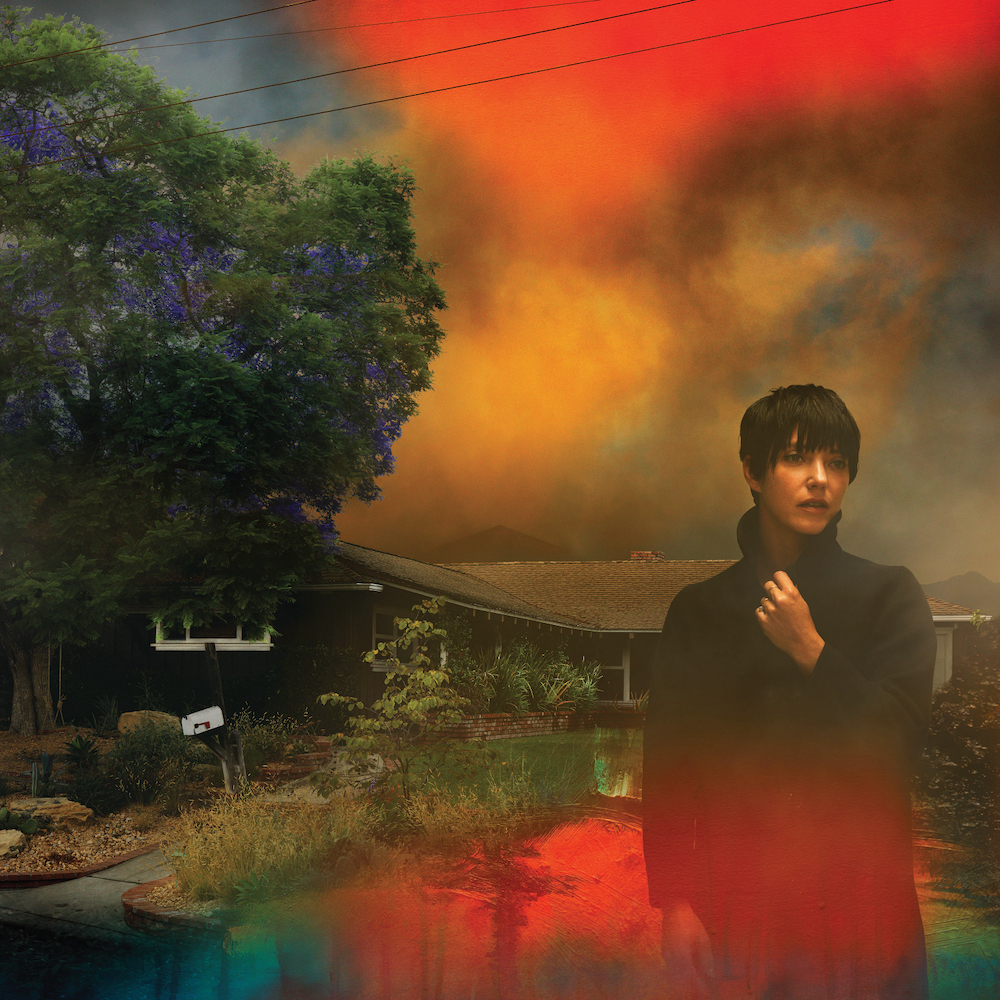
24.
Sharon Van Etten – “Darkness Fades”
[Jagjaguwar]
Wishing for it to be appreciated as a whole, Sharon Van Etten didn’t release any singles in the build-up to We’ve Been Going About This All Wrong. With our apologies, however, “Darkness Fades” is the set’s opener and quintessential piece – while also a metaphor for the pandemic. It begins in solitude, tracing the walls for signs of a secret passageway before sensing someone doing the same from the other side of the partition. The world outside has gone black, but a spark lights inside of her and before long the music swells along with the human spirit. This is Van Etten’s prayer of thanks for the grace of hope and a vow to never again lose faith. – Steve Forstneger
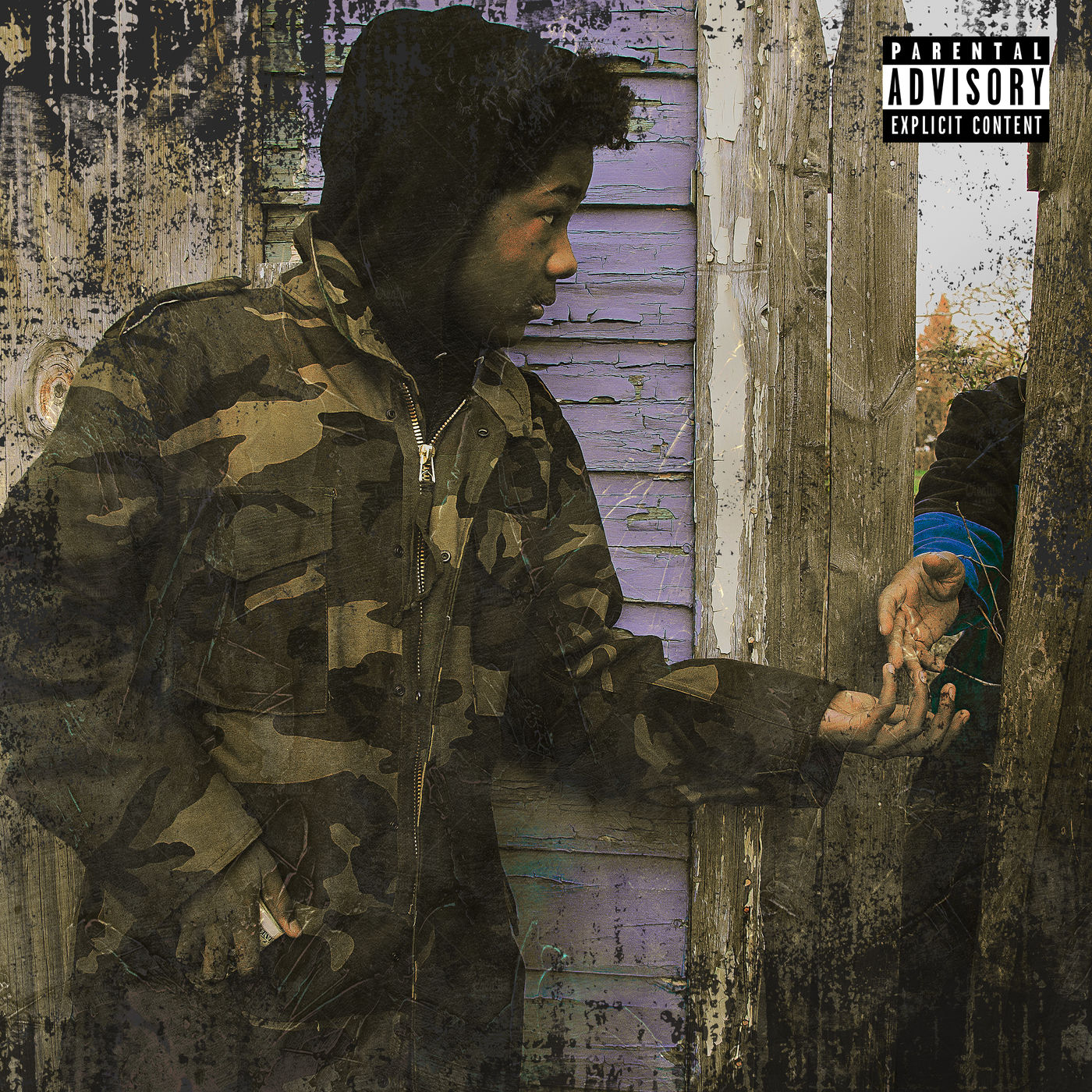
23.
Conway The Machine – “Stressed”
[Shady/Interscope]
When we look back at the experiences of our lives, do we find that we’re shaped mainly by the good things we remember, or are the bad times responsible for who me are and might be in the future? Is the struggle to overcome trauma and hurt more relevant to our identity? After listening to “Stressed”, I have a good idea how Conway the Machine feels about that.
One of the most painful and honest autobiographical songs I’ve ever heard. It chronicles moments of abuse, addiction, death, and hopelessness in a way that feels as though we’re watching him cut away parts of his heart. It’s uncomfortable and acidic and completely necessary for him as he tries to find meaning behind all the suffering he’s lived through.
“I was down bad and broke, but I wrote through that”, he raps, acknowledging that words have the power to crystallize thoughts and events in our minds, to provide context for pain and to lift us out of the darkest parts of out lives. And believe me, it gets pitch black before any meaningful light manages to seep through the cracks of this world. Blending boom-bap theatrics with voyeuristic lyricism, he discusses alcoholism, the suicide of his cousin, the death of his son, and the proliferation of fake friends with their hands out. The beat shakes the strings in your heart while the slight electronic vibrations in the background add texture and nuance to these stories. There are no easy answers here, and Conway doesn’t provide happy endings – he only lays out the process by which we might heal. – Joshua Pickard

22.
Beth Orton – “Weather Alive”
[Partisan]
“Weather Alive” is Beth Orton at her most internal and impressionistic, an extended spiritual conversation about connection and the renewal of love. Building slowly from a quiet whisper, her voice as evocative and mysterious as always, the song gradually reveals a wider perspective on our place in the world and in the lives of those we love – it’s a gorgeous and breathtaking offering from an artist almost 30 years into her career.
Aided by Alabaster dePlume, Tom Skinner, Tom Herbert, and Shahzad Ismaily, she allows the music to flow unabated, with each musician contributing to this vision. Between spoken-word passages and deep dives into ambient-folk, Orton effortlessly crafts a lush world of interior wonder and reflective symbolism.
She speaks to “the world calling out to me”, with it ultimately being “beyond my reach”, but she longs to be a part of it. She sees the splendor of the world (“the weather’s so beautiful outside”) and does all she can to be an accomplice to its grace. It’s remarkable how little her voice has changed from her earlier albums, how persuasive and intimate it remains. To experience “Weather Alive” is to be swept along in its swirling dynamics, listening as immersive drones and folky experimentation give way to stranger and more stunning landscapes into which her impulses are freely released. – Joshua Pickard
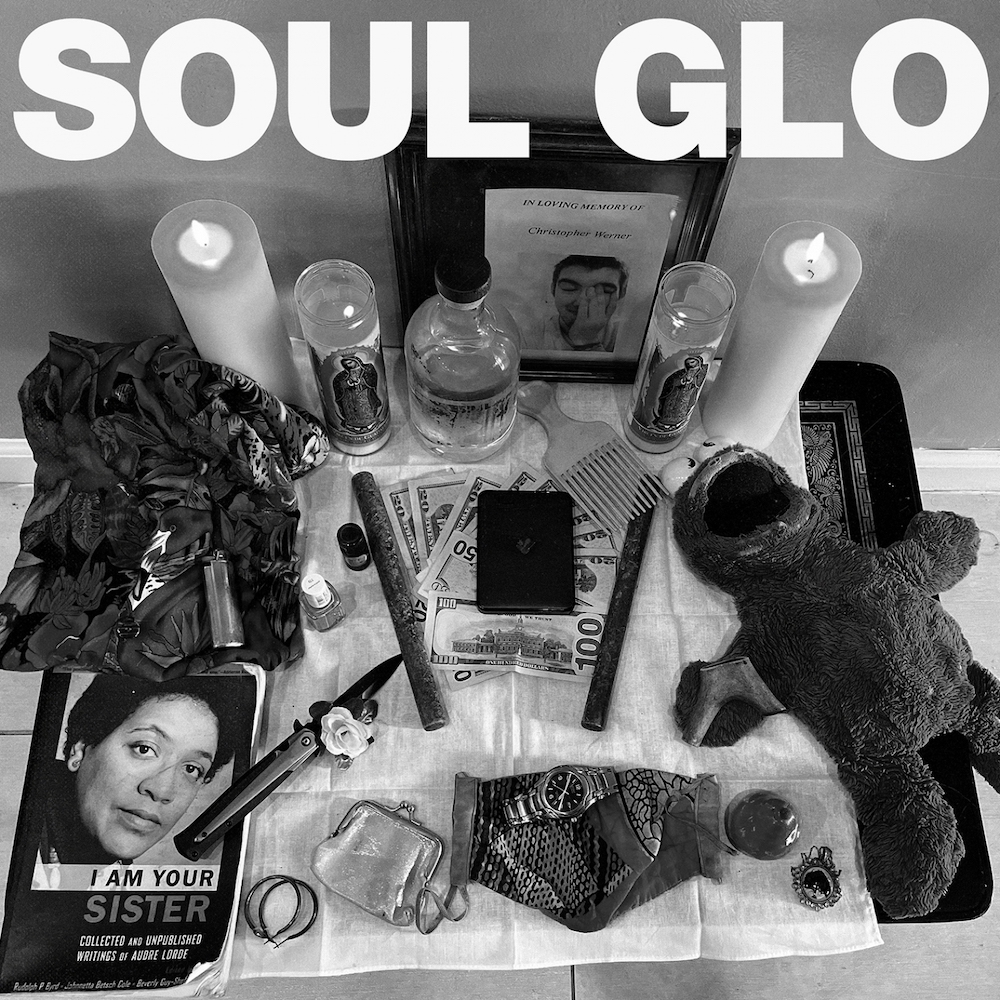
21.
Soul Glo – “Spiritual Level Of Gang Shit” (feat. McKinley Dixon and Lojii)
[Epitaph]
As if the first 35 minutes of Soul Glo‘s Diaspora Problems hasn’t been strenuous and thrilling enough, the Philly band saves their most exacting and intoxicating moment for last. At first they lull you in with a (relatively) relaxed opening two minutes, providing space for their two guest rappers to drop pissed-off observations about racist police. But the whole time you can practically feel vocalist Pierce Jordan waiting in the wings for his turn.
With a sudden ripple of riffage, Soul Glo start their charge for the finish line – and bring some horns with them for the farewell fanfare. Jordan is immediately into throat-shredding mania, spitting back at the life he’s had to lead under the pressures of institutional racism, which ekes out of every street corner. “It’s a spiritual level of gang shit” he repeatedly screams, bluntly summing up the size of the enemy that we face. Soul Glo know the battle is only just beginning and this is their warning: if you’re not on the right side of this war, you will be shown no mercy. – Rob Hakimian
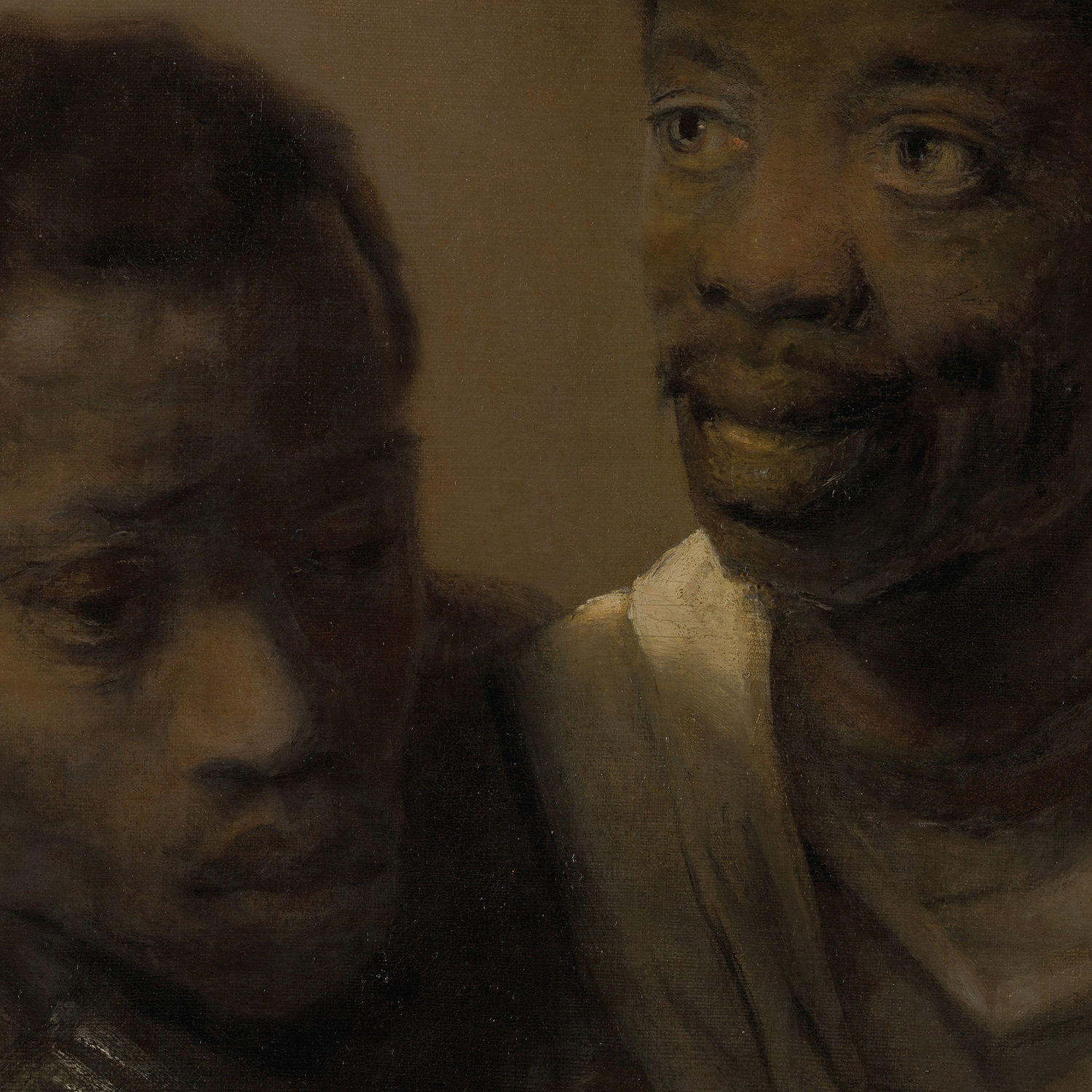
20.
billy woods – “No Hard Feelings”
[Backwoodz Studioz]
Cult rapper, brutal wordsmith, lovelorn optimist. Wait… one of those isn’t typically used to describe the work of NYC’s greatest underground weapon billy woods. On “No Hard Feelings” from his first album of 2022, Aethiopes, woods sets his sights on the slum life. In between some of DJ Preservation’s most aggressive brass samples, woods recollects a handful of scenarios, one being a night he got stood up after paying for a hotel suite and iced a bottle of champagne. He brushes it off, as one would expect, but one can’t feel the slightest bit sympathetic, a rare emotive response for a billy woods song. – Tim Sentz

19.
Florist – “Red Bird Pt. 2 (Morning)”
[Double Double Whammy]
There’s a sense that if you speak above a hushed voice the music of Florist might disappear into the nearest bit of underbrush. Skeletal and crystalline, the band’s work is delicate but imbued with great emotional weight, cautious but inclusive when it finally reveals the nuance of its narrative. And on “Red Bird Pt. 2 (Morning)”, the band’s ear for detail is on full display, with creaky folk structures and moments of turbulent euphoria breaking apart the ramshackle atmosphere they’ve conceived. Recorded on a screened-in porch in June, the song allows for nature’s own musicality to intrude a bit, with birds singing and the wind blowing in the background. But it’s how singer Emily Sprague channels the memories of her father into such an intimate stream of specifics which makes the track so emotionally affecting.
As passed-down recollections emerge of hospital drives, the pull of familial bonds, and the ache of lost time, we begin to see this as more than just snapshots of grief and longing – we witness the weaving of a tapestry of life, of connections, and of the importance of companionship. Guitars are lightly plucked while shivering sunsets roll away and Sprague’s voice acts as the guiding line for all our shared explorations. There is a superficial fragility to the music, but underneath those vulnerabilities are potent emotional revelations, memories coming to life and acting as spiritual links to the past. Toward the end of the song, you hear her say, “That’s it”, and the finality and feeling of closure that suddenly overwhelms you is nothing short of miraculous. – Joshua Pickard

18.
Dry Cleaning – “Gary Ashby”
[4AD]
Dry Cleaning’s songs can often come across as sardonic or trivial due to Florence Shaw’s deadpan delivery, but on “Gary Ashby” there is a quiver of genuine emotion that gets mingled in. She tells the tale of a family’s beloved pet tortoise who – despite the creature’s legendary slowness – managed to escape during lockdown, leaving her bereft and wondering “are you stuck on your back without me?” Along the way we get some insights into how poor Gary was beloved; they gave him their family name and loved to watch him kick around a tinfoil ball. In most hands a story like this would be played for pure comedy, but Dry Cleaning treat it with utmost care, pairing Shaw’s forlorn remembrances with rippling electric guitar and propulsive percussion. It’s their way of saying “godspeed, Gary, wherever you are.” – Rob Hakimian

17.
Jockstrap – “Glasgow”
[Rough Trade]
Jockstrap’s terrible band name belies their collaborative creativity: a violinist and an electronic musician make pop music, but it alternately sounds like disco, glitch, or whatever the hell “Beavercore” is. Unlike much of their debut album I Love You Jennifer B, you can’t dance to “Glasgow”, but it unfolds like a movie.
The video does a good job of capturing the song’s travelogue lyrics, but the unabridged version’s buildup makes everything sweeter. That second “I know myself” about two minutes into the track hits like a waterfall, and the wordless, string-laden section is as sweeping as Sweet Trip’s classic “Milk”. Maddeningly addictive, “Glasgow” is as thrilling as the rush of running to catch a train as soon as the doors close. At the song’s end, you leave the station with it. – Ethan Reis
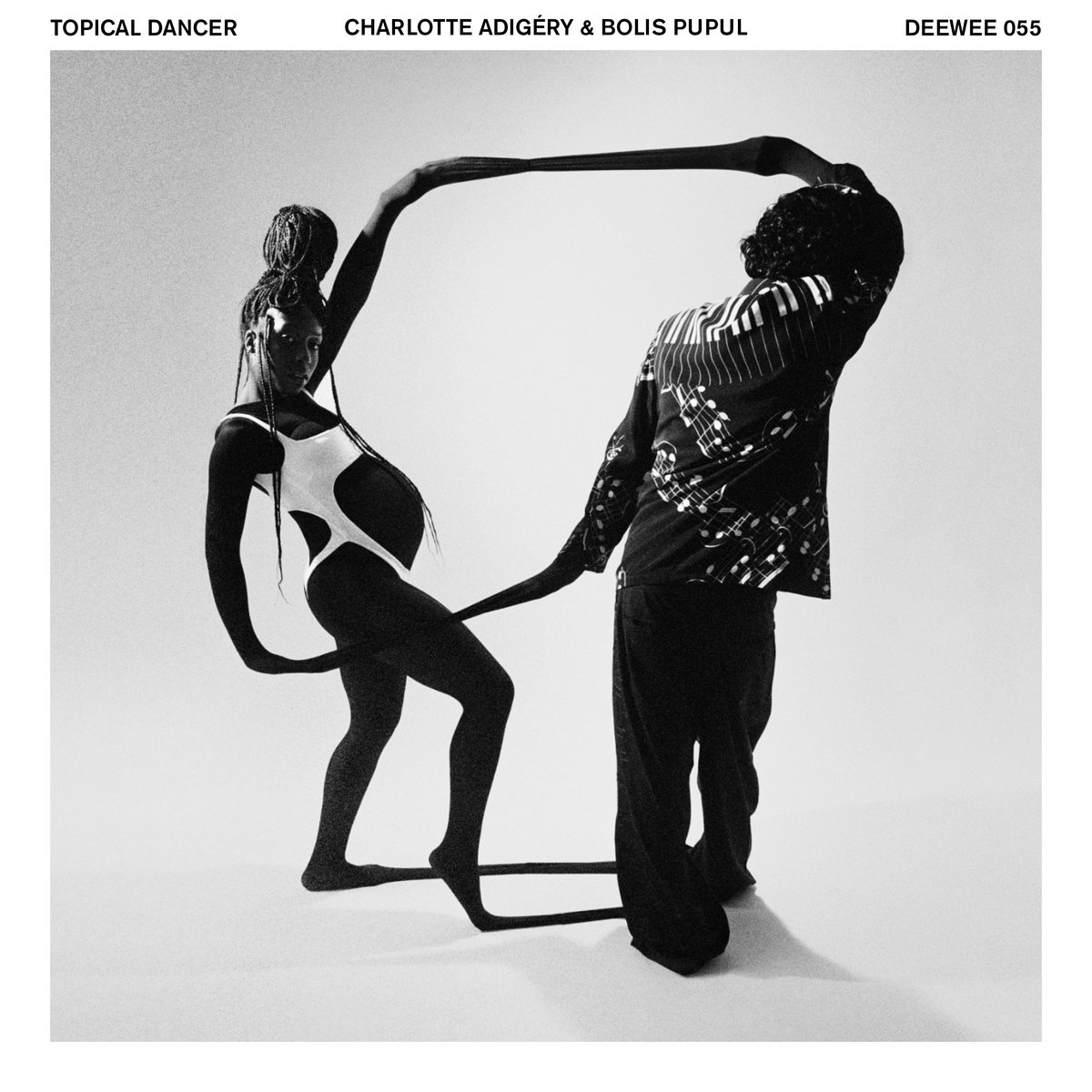
16.
Charlotte Adigéry & Bolis Pupul – “It Hit Me”
[DEEWEE]
The jittery and faint metallic rhythm of “It Hit Me” is something of a red herring. There’s a party happening, but Charlotte Adigéry and Bolis Pupul are pulling you in close to have a frank conversation in the middle of it all. And it’s an important one too, capturing those moments where one’s childhood vanishes. Adigery details being catcalled by a group of men when just 13 years old and on her way home from field hockey practice, while Pupul recalls a love letter that led to the exploration of his body and the rummaging about of his father’s cabinet for cologne. Their voices pitch-shifted until the final utterance of the titular phrase in the chorus, “It Hit Me” takes that moment of distraction from the surrounding noise and looks you directly in the eye. – Ray Finlayson
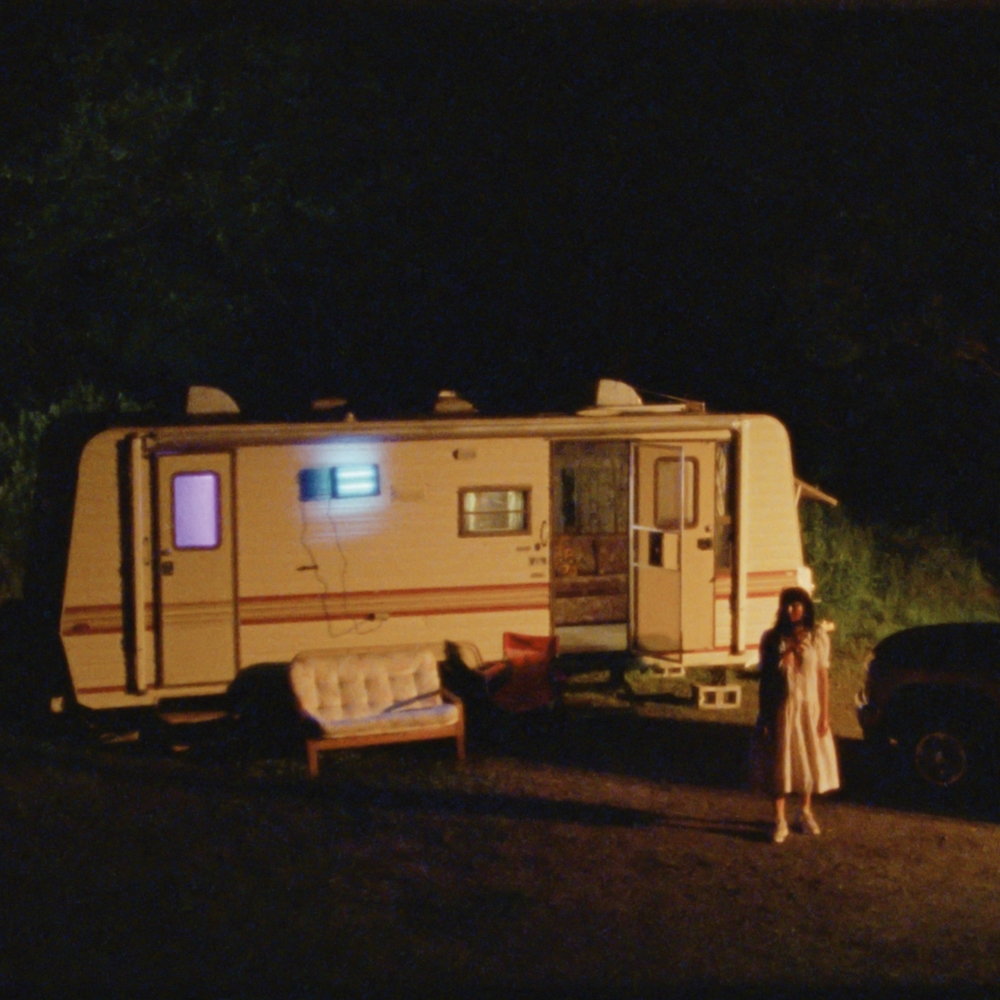
15.
Boy Harsher – “Autonomy” (feat. Cooper B. Handy)
[Nude Club]
“Autonomy” has all the intangibles of a great pop song. There’s no compromise here: Boy Harsher is still Boy Harsher, and Cooper B. Handy is also completely autonomous – pun intended – in doing his uniquely Lucy thing: a Pavlovian gift for dreaming up goofy pop hooks that feel forever frozen in that lofty light bulb moment. Then there’s the imagery and characters of Boy Harsher’s The Runner film peppered in, with that spooky, fog-covered rural New England setting, the decidedly goth dance routines juxtaposed with Lucy’s artless frolicking around the countryside. It’s a seemingly random blend of joy and weird that made 80s cult horror something mythical; a vibe somehow translated into the present. Depeche Mode meets Riverdale, what’s not to like about that? – Jasper WIllems
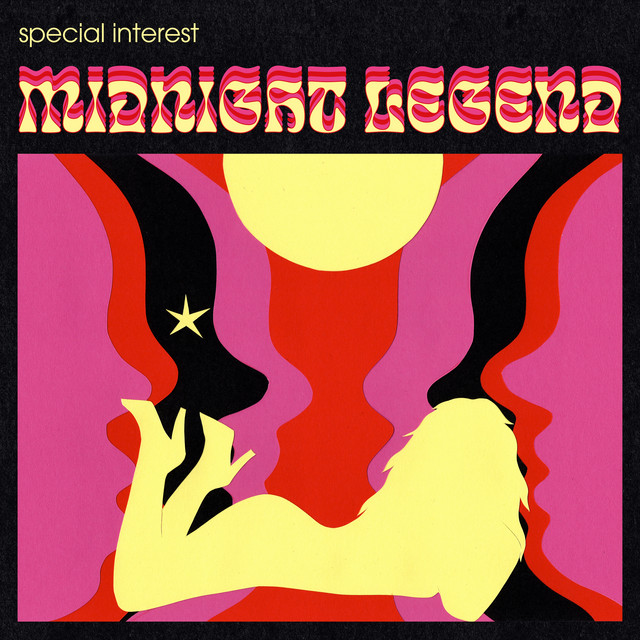
14.
Special Interest – “Midnight Legend”
[Rough Trade]
The glowing keys and pounding club beat that drive “Midnight Legend” could soundtrack a runway show or a night at the seediest of clubs. It captures the probable mindset of the Midnight Legend herself, a woman who lead singer Alli Logout treats with admiration and wonder (“Won’t you tell me all about your story,” she asks on the chorus). On the album version, Alli Logout’s rapped verse is among the most thrilling moments on Endure. With every line, they grow more ecstatic, more manic, rhyming “he he he,” with “mon chéri,” spitting about their social network (which includes the Midnight Legend) and then the need to repent at church in the morning.
The song’s glamorous sheen belies Logout’s other observations about the song’s namesake. Lines like “I know you ache to dream about another life” and “They all pine for you, built you to destroy you” imply a life of constant struggle. Yet like the rest of Endure, the song is also about resilience. The concrete runway is what the Midnight Legend has earned, and she’ll be damned if she’s to give it up. – Carlo Thomas
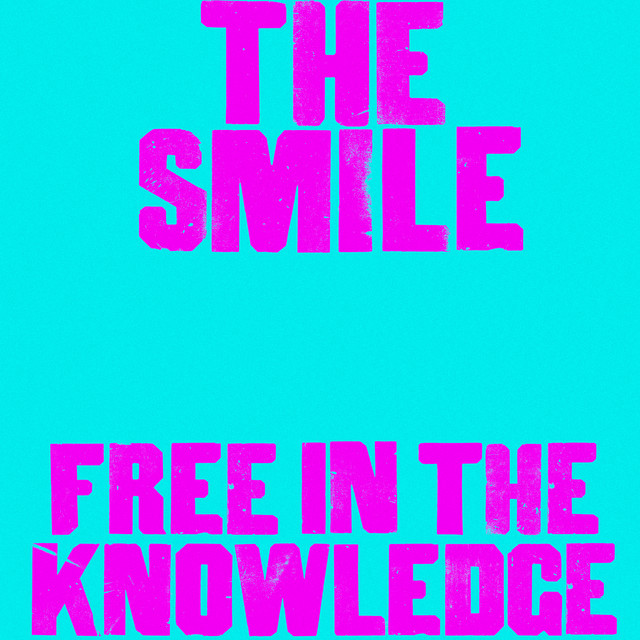
13.
The Smile – “Free In The Knowledge”
[XL]
Thom Yorke’s not known for his subtlety and let’s face it, an album titled A Light for Attracting Attention is bound to get criticism for its on-the-nose approach to topical issues. But “Free In the Knowledge” is that solitary moment on The Smile’s debut album that evokes the most pre-OK Computer vibes for the Radiohead side-project. Its delicate piano paired with Yorke’s paced falsetto could fit anywhere on The Bends – if it weren’t so perfect for right now. With all of the disinformation flooding the internet and tabloids, the lies spewed from politicians, “Free In the Knowledge” comforts in reminding us that this is just a bad moment, and it’ll pass. Whether Yorke’s right or not won’t be determined for a while, but for now it hasn’t felt this good to embrace naivety in such a long time. –Tim Sentz
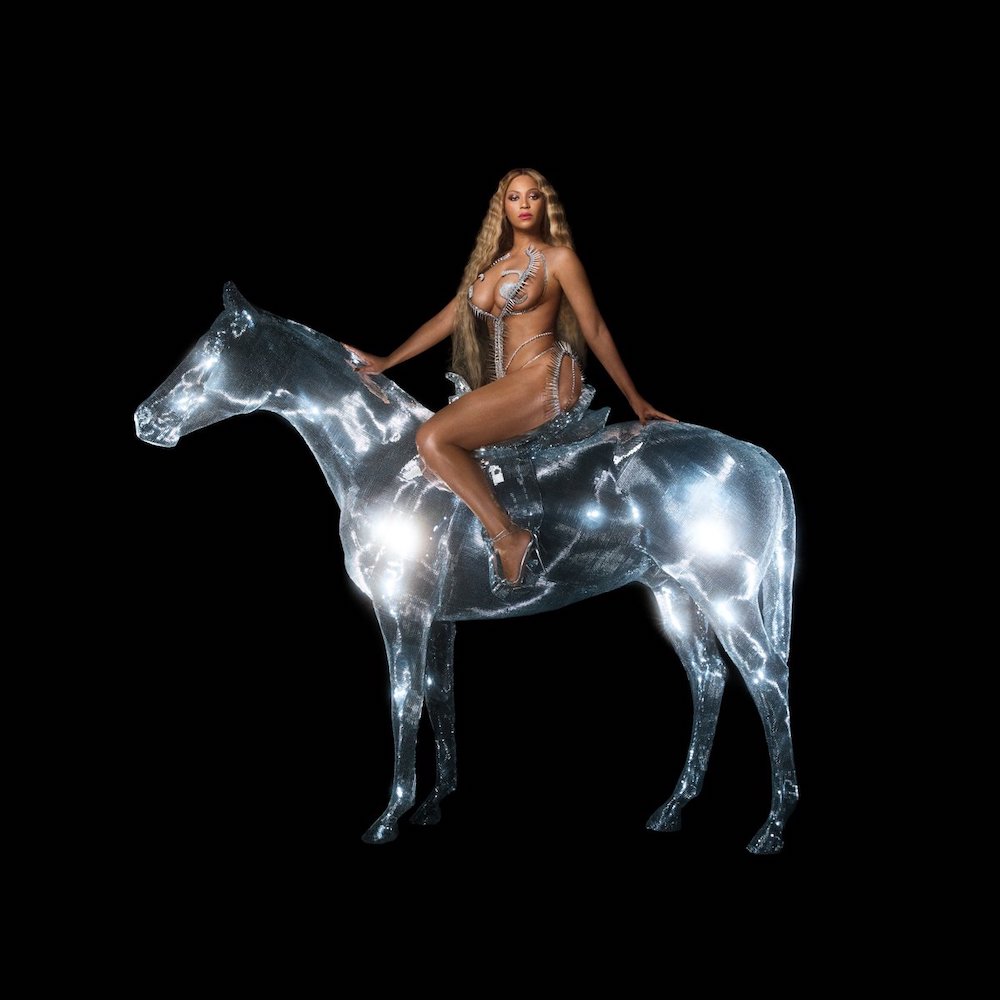
12.
Beyoncé – “Pure/Honey”
[Parkwood/Columbia]
On an album full of highlights it’s difficult to pick a standout, but the clubby and campy “Pure/Honey” on Beyoncé’s Renaissance is as good a choice as any.
Opening with muted horn blasts and a voice echoing “cuntcuntcuntcunt”, this is automatically the song that demands attention like a call to arms. Suddenly, the listener is enfolded in urgent bass rhythms and Beyoncé’s commanding tone as she states “Bad bitches to the left / Money bitches to the right.” There is a certain novelty in hearing Beyoncé say that cuss word (“Get your money, money, cunty, hunty.”) and it cannot be denied that this track in particular feels like a love letter to drag culture.
Things switch up in the latter half of the song as it transforms from pulsating club anthem to throwback disco eroticism as Beyoncé coyly reveals how “the devil’s on [her] shoulder.” With an upbeat tempo, she details her sexual prowess (“Once you get me piped up / Baby I won’t stop”) over the funky rhythm. The verbal illustrations of being “stuck in [her] honey” aren’t necessarily subtle either. This song is an assertion of being fully comfortable in your skin and knowing it’s a privilege to have someone enjoy you.
Fun, sexy and eyebrow raising in its explicitness, this two-for-one track encapsulates why Renaissance deserves the hype. No one expected Beyoncé to make a song like this and yet, like the many many genres she has already conquered – it feels a natural fit. – JT Early

11.
Gilla Band – “Post Ryan”
[Rough Trade]
From front to back, Gilla Band‘s Most Normal is an ear-splitting, spleen-rupturing musical statement from a band that had already made a name for itself — though now changed — for being a group of rowdy, disillusioned noisemakers. However, it is the very back end of this post-punk monstrosity that delivers an explosive blow to the head. Album closer “Post Ryan” is a gnarled banger — heavy but rarely abrasive and groovy as all get out.
Absorbing listeners into the band’s usual cavernous abyss of static and disorientation, the bottom of this pit is inevitably bleak. And it doesn’t help either that Dara Kiely’s lyrics remain quintessentially misanthropic and surreal. Still, that doesn’t mean the descent down this hell hole isn’t one helluva ride too.
With Gilla Band commandeering the iconic, fun-loving beat from A Flock Of Seagulls’ “I Ran” and warping it for their own vile purposes, the teetering “Post Ryan” winds up as the band’s most irresistible and danceable offering ever. It’s a bold move to have your one (obvious) single-worthy moment bring up the rear of the field. But because Most Normal offers hell in incremental microdoses, it’s only logical to deliver the lethal injection at the very end — and what an exhilarating way it is to go out. – Kyle Kohner
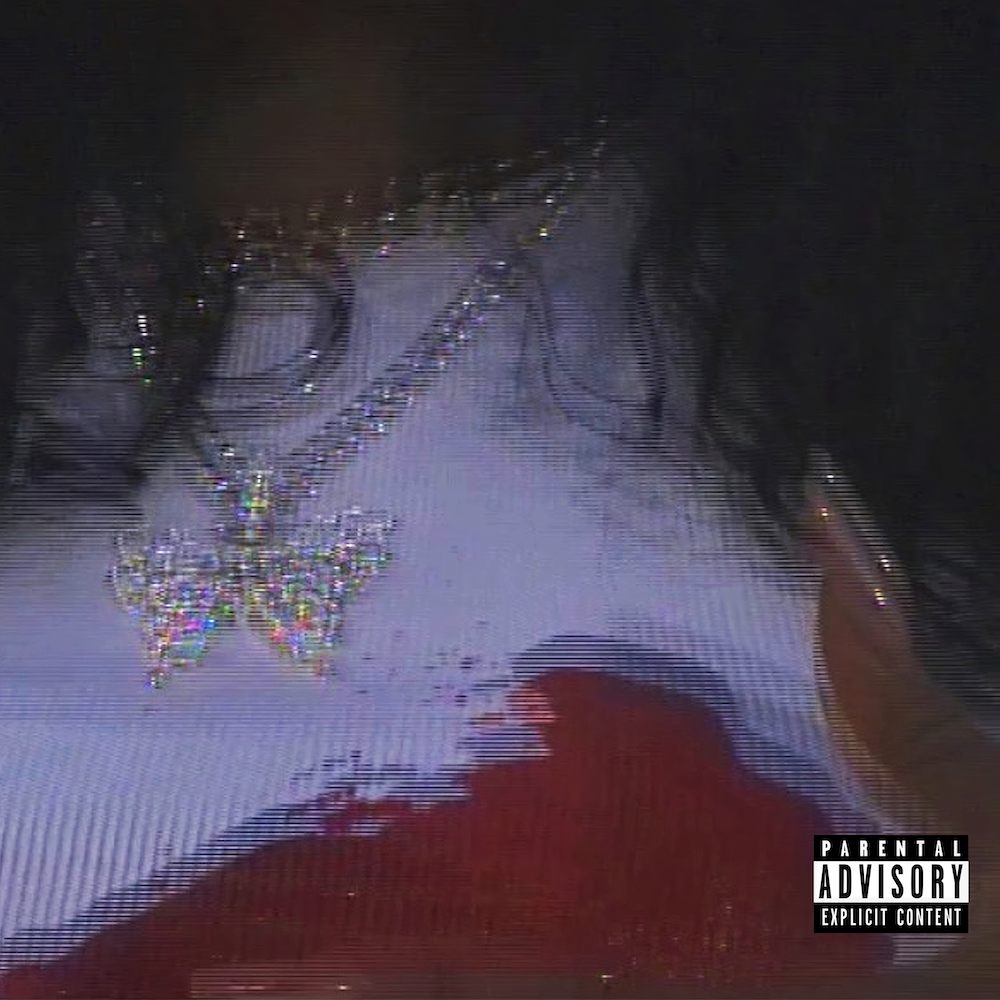
10.
SZA – “Shirt”
[Top Dawg Entertainment]
It is truly a gift that an artist would achieve SZA’s current popularity level without ever betraying the lush, soulful R&B sound that got her there. That alone makes it worth the often long wait between each solo song of hers, but if that doesn’t suffice then the excellence she delivers will. “Shirt” finds her voice brimming with emotion as she muses about finding her way in the darkness. It is an impeccable composition, the perfect combo of bass and drums underscoring perfectly placed synths and vocal samples that show Darkchild’s production skills have yet to lose any of their strength. On her turn, SZA’s lyrics are sharp, poignant, and expressive. Each line about her troubles, uncertainties, and hopes is delivered with the most beautiful and unique colors of her voice. Each element compliments the other to create a listening experience that allows for no objections, save for the fact that it ends – Lucas Martins
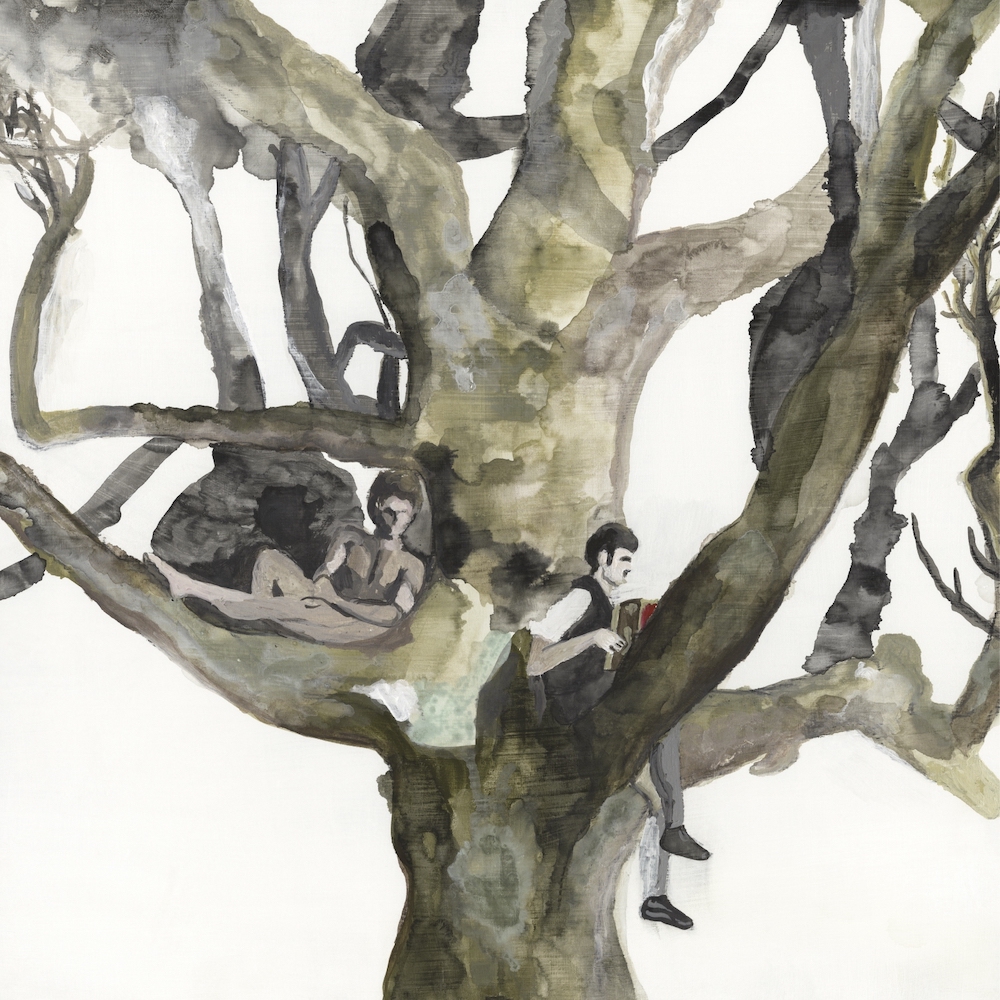
9.
Destroyer – “June”
[Merge/Bella Union]
It’s hard to tell at this point in his career whether Dan Bejar is purposefully fucking with us. I’ve just come to accept that on any given track we might see one of a handful of contrasting personas he’s cultivated over the years: the acerbic poet, the louche balladeer, the wistful pop nostalgist. On his latest Destroyer album, Labyrinthitis, and more specifically on album centerpiece “June”, he seems intent on merging these personalities together in a blur of feverish revision and adaptation. Blending lounge pop movements with a more experimental production aesthetic – and ending with a two-minute spoken word section backed by groovy disco rhythms – the song is an extended amalgam of the different periods in the life of Destroyer, a compilation of musical eras which speaks to his natural ability in fomenting melodic pop oddities.
He directs each part with the efficiency and drive of the most seasoned orchestra conductor, leading one for a time before recentering his attention on another part which needs his care. His ability to mold these capricious parts into a cohesive whole is an often-overlooked aspect of his work. And “June” may well be the apex of his abilities in managing such a complex series of shifting musical contours. We’re given four minutes of vivid pop music filled with flexible guitar lines, echoing vocals, spacey synth flourishes, and effectively minimal beats before we’re dropped without warning into that spoken word entanglement, which winds up being the perfect atmosphere in which his verbose descriptions and darkened humor find release and revelation. – Joshua Pickard

8.
Chat Pile – “Why”
[The Flenser]
Heavy on sludgy pyrotechnics as well as theological and sociopolitical digs, Chat Pile’s debut, God’s Country, depicts a world in which, ironically, God seems to be pretty much absent. The album’s most blistering commentary on humanity’s decline occurs on the second track “Why”, an inflammatory plea on behalf of the homeless. Bolstered and battered by razor-wire guitars, distorted bass, and drums that sound like they were recorded in a fallout shelter, singer Raygun Busch pleads, “Why do people have to live outside / in the brutal heat or when it’s below freezing?” The song succeeds not so much in terms of hook-orientation but rather as a result of the band’s ability to navigate soft-loud dynamics and fluctuations in intensity. “Horror story / real American horror story,” Busch spews, manic yet exhausted, breathless yet unstoppable. The song stands as a dystopian manifesto on the inequalities inherent to American society and, more broadly, the selfish and exploitative side of human nature. – John Amen

7.
Alex G – “Runner”
[Domino]
Sure, you could accuse “Runner” of being a subconscious remnant of hearing Soul Asylum’s “Runaway Train” on AM Radio during a nighttime summer drive, but the amorphous quality of Alex G always looms in even his more fully-formed songs. “Runner” offers yet another example of Alex Giannascoli’s seamless talent for melody and tension. The song fakes the listener out early with the kind of piano-plinking heartland rock intro The War On Drugs have written by the assembly line.
Then Giannascoli’s unassumed guitar strum comes in like an embrace, a ploy which normally should evoke fuzzy feelings. But like with a lot of Giannascoli’s productions, something feels a little off: the somewhat cold, hard textures suggest the song’s narrator isn’t exactly cosying up behind the fireplace. “I have done a couple of bad things”, an increasingly manic Giannascoli confesses, until the words are uttered in anguished screams. You can almost picture him slamming his head into the steering wheel afterwards. – Jasper Willems
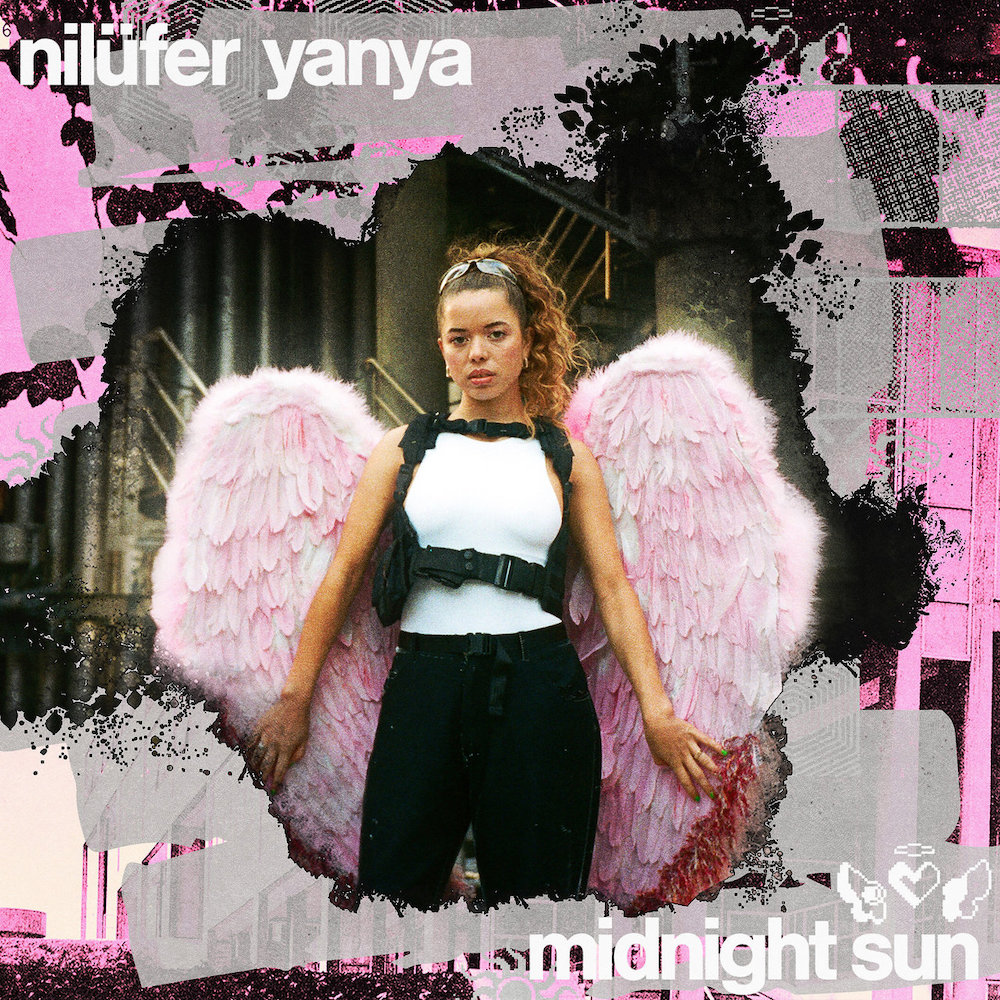
6.
Nilüfer Yanya – “Midnight Sun”
[ATO]
From her stellar album of 2022, “Midnight Sun” showcases everything that’s beguiling about Nilüfer Yanya as a genre-hopping artist. A plucked Radiohead-style guitar intro leads into a deep, breathy vocal that stretches out syllables as the lyrics play with juxtaposed statements of intent and obscured futility. The vocal delivery is enigmatic, never fully exposing the singer’s truth to the listener. Words of hope are sung in downward descending chords while more emotionally troubled lines are accompanied by optimistic instrumentation. As close as we are to her voice, she purposefully distances us from its meaning. The sentiment in the opening lines of “I remember everything / So I can’t take back anything” spills out to notions of loss with lines such as “I bet it all goes wrong” but then there are moments of obfuscated emotional triumph in “You’re my midnight sun, always I did it for you.” It’s a bruised and emotional song with tenderness and hope at its core. Something to immerse yourself in. – Todd Dedman

5.
Weyes Blood – “Children Of The Empire”
[Sub Pop]
Weyes Blood’s epochal “Children of the Empire” opens with the line: “Looking like some clear skies have finally opened up my eyes”. The assumption is that some measure of clarity has been bestowed upon Natalie Mering’s world, some internal lucidity which helps to provide context for the joy and the ache pushing in on her from all sides. And in the Darkness, Hearts Aglow deals with the connections both tenuous and immovable that provide the foundation of our interconnected lives. And that idea becomes fully realized on this song, with its lush orchestral sounds and almost festive atmosphere – its density is matched by its emotional resonance, as Mering douses everything in baroque pop curlicues and extended melodies that could have been carved into stone over 1,000 years ago.
Developing a theme of breaking away from the past, from the restrictions of perceived social infrastructures, she discovers a way to move forward, to carve out our path separate from expectations and the burden of history. The piano seems to stretch out for miles as bells toll and strings engulf anything within earshot. Taking cues from prog-pop, Mering allows the music to shift and adapt as she releases it, guiding it but never forcing it to address anything beyond the needs of the moment. It’s absolutely gorgeous and liable to overpower your senses, proving that the brilliance of her previous work was only a hint at what was to come. – Joshua Pickard

4.
Black Country, New Road – “The Place Where He Inserted The Blade”
[Ninja Tune]
The world is a dangerous place. Many of us are afraid of it. I’m afraid of it, and so is Black Country, New Road‘s former front person, Isaac Wood. Still, in the dramatic “The Place Where He Inserted The Blade”, he confronts such immense fear with a level of vulnerability that is nothing short of authentic and even startling. With calamitous domesticity on full display, between images of dinner unmade and a house on fire, this fear threatens to drive a wedge between our narrator and their beloved. This is the reality when living with anxiety; yet, it is the love and devotion from another that tends to keep our anxious selves “bound” to reality and such feelings from bursting everything and everyone we touch aflame.
The melodramatic emotion of “The Place Where He Inserted The Blade” will forever floor listeners with a dagger directed at the heart, but this theatrical earworm also leaves its mark as a musical trapeze act, with the rest of the band balancing its immense and wondrous baroque pop sound with a bit of sonic playfulness to echo what might be the most infectious chorus of the entire album. Still, it is the song’s transparent account of having a mental breakdown, in front of a loved one most notably, that captivates, devastates, and ultimately touches listeners in the most impressionable way possible.
Wood spoke with striking precision about anxiety, collective and individual, throughout his short but remarkable tenure as Black Country, New Road’s vocalist. His words, voice, and feelings came and went at the perfect time when the world submerged and then emerged from global disaster. But of his many oddly wise words, no statement strikes a more resonant chord than his quivering whisper that pries this track wide open: “You’re afraid of a world where you’re needed.” Many of us are still not quite ready to brave a world that needs us. We can’t escape the people and obligations we’re bound to, however, it’s ok to be afraid — this song affirms that much so. It’ll just take some time to muster up some courage to brave it all, just as Wood has. – Kyle Kohner
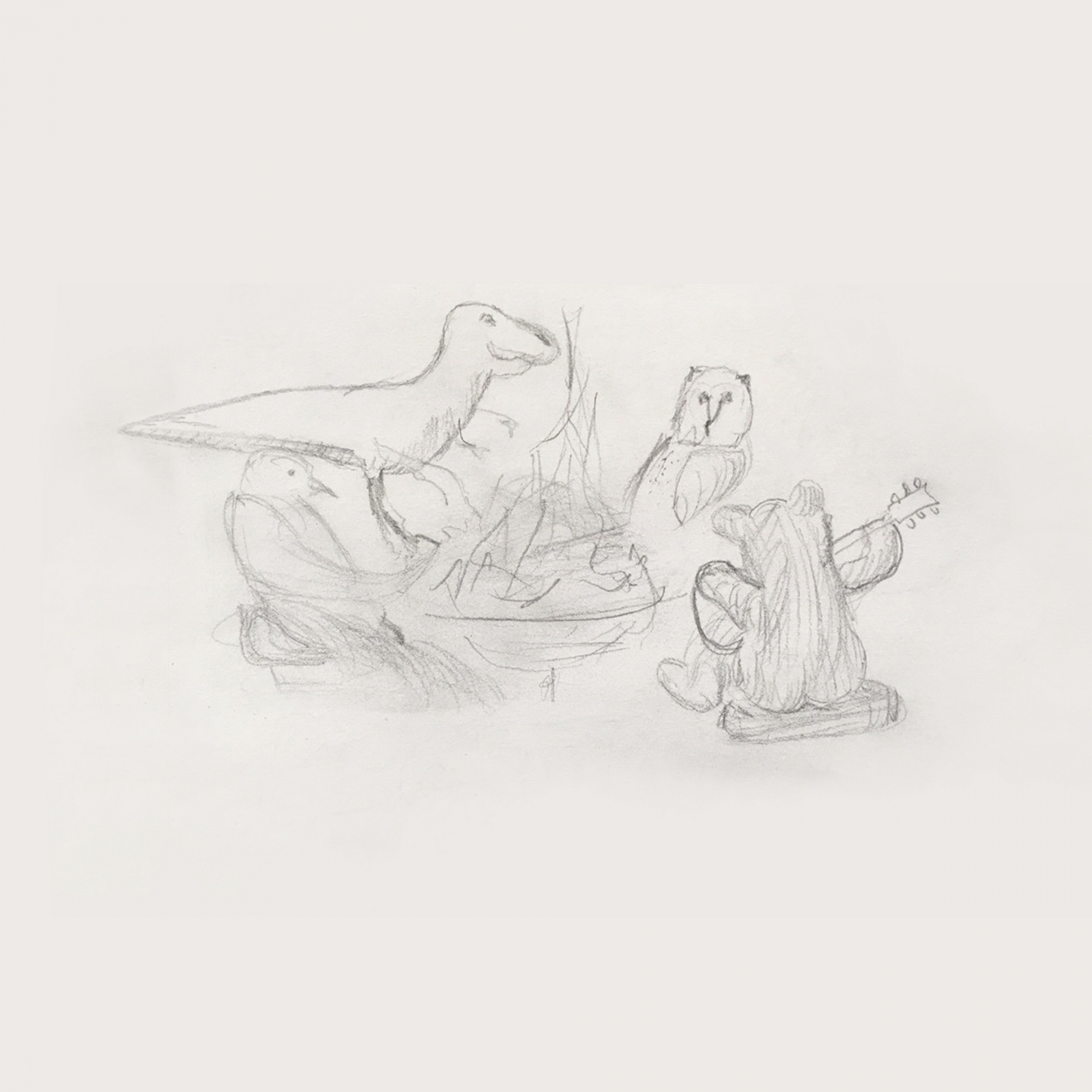
3.
Big Thief – “Simulation Swarm”
[4AD]
The circling chord pattern that sounds like a hum of insects in a far off field. The reiteration of the phrase “once again”, like Adrianne Lenker is watching the circle of life happen in front of her eyes. And, of course, those awesome prickly guitar breakdowns, which add a ringing texture to the track as Max Oleartchik and Buck Meek clap along in the background. Big Thief‘s “Simulation Swarm” contracts in a cyclical manner before it starts reaching outside its frame. The music feels like an organism, living, breathing, and learning with each minute.
And then there are Lenker’s lyrics, which offer a thesis-full of potential analysis. The multiple references to various colours – “Deep blue,” “violet door,” “crystal blood,” “pale green tree”- make the surrounding poetics vivid and fulsome before the hilt of the blade comes to the head: “I’m not fighting in this war,” Lenker states, already walking away to come and “walk you to the shore”. And you will walk with her. You’ll follow her every step of the way like you follow every moment of the song. – Ray Finlayson
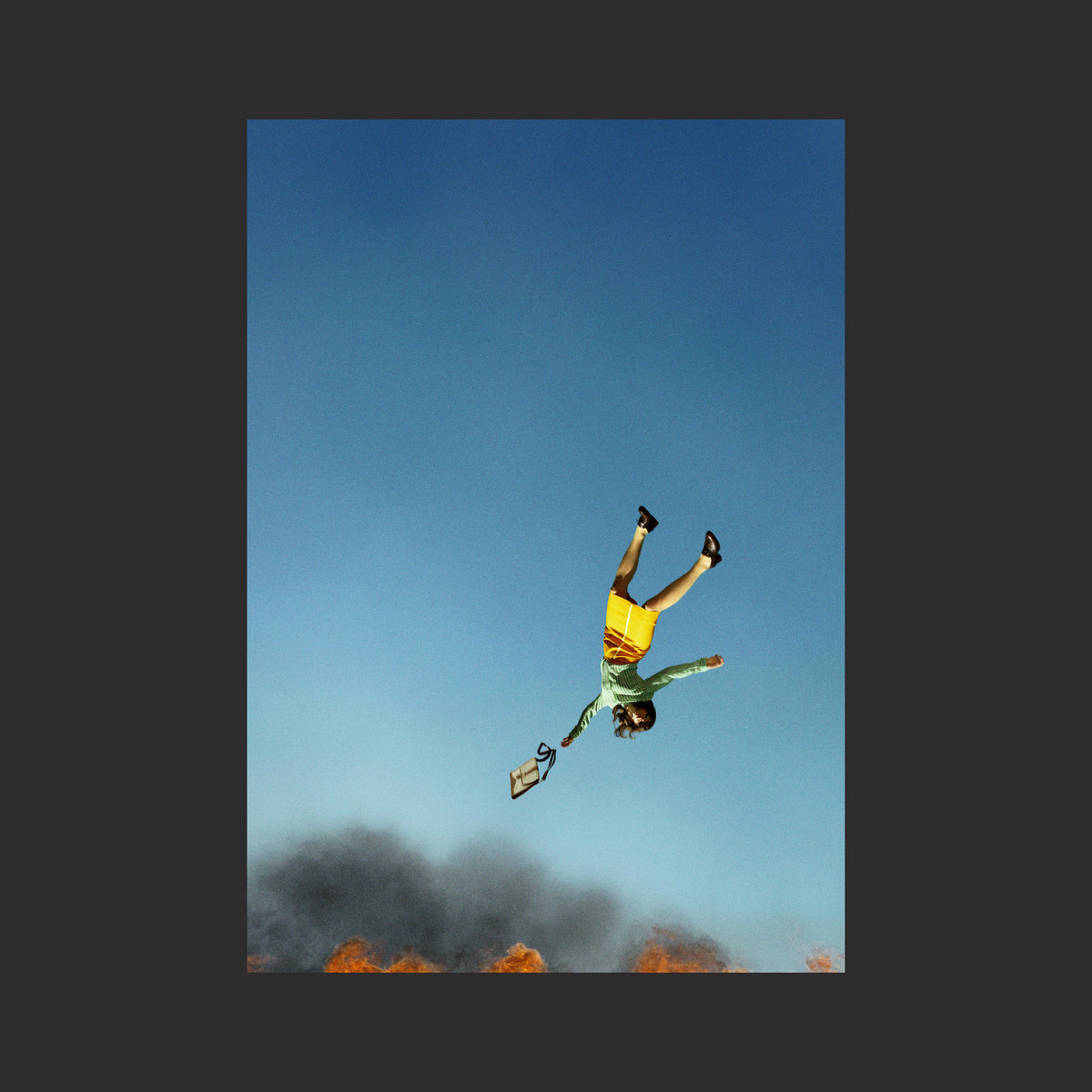
2.
Yeah Yeah Yeahs – “Spitting Off The Edge Of The World” (feat. Perfume Genius)
[Secretly Canadian]
Yeah Yeah Yeahs waited nine years to release new music, but when they did it was a huge and uncompromising message: the world is fucked and the kids are the ones who are going to pay for it. They combined this apocalyptic sloganeering with humongous blocks of synth that land like earthquakes, and atop them their fearsome leader Karen O stands, snarling “the kids cry out: ‘we’re spitting off the edge of the world’.”
O sings from the point of view of the disenchanted youth, by turns lost and furious; “mother, what have you done?” Meanwhile guest vocalist Perfume Genius adds the honeyed voice of Mother Nature herself: “She’s melting houses of gold”. Ultimately, “Spitting Off the Edge of the World” is uncompromising in its vision of global destruction; “Never had no chance / nowhere to hide” O sings, and as Nick Zinner’s guitar rises up in scorching tones towards the end, and you can easily envision flames engulfing everything. A torch song for a generation, as effusive and angry as “Spitting Off The Edge of the World” is, it’s also a plea: for harmony, for conscientiousness, for salvation. Let’s hope people are sitting up and listening. – Rob Hakimian

1.
Kendrick Lamar – “Mother I Sober” (feat. Beth Gibbons)
[Top Dawg Entertainment]
The words “pain,” used four times, and “transformation,” used three times, contextualize “Mother I Sober”, one of the stunning pieces of Kendrick Lamar’s Mr. Morale & the Big Steppers. Throughout the track, Lamar struggles to make peace with what he experienced as a child and the legacy of Black trauma handed down over the course of generations. While the song brims with disturbing anecdotes and declarations, it also shows Lamar envisioning a palpable redemption – for himself, Black people, and the world at large.
“I know the secrets every other rapper sexually abused / I see ’em daily burying the pain in chains and tattoos,” Lamar offers, though as the song moves toward closure, he revels in awareness and healing (“So I set free myself from all the guilt that I thought I made”; “So I set free the hearts filled with hatred keep our bodies sacred / as I set free all you abusers this is transformation”). Guest singer Beth Gibbons serves as a high priestess, her delicate yet sultry presence set against Lamar’s more volatile delivery. As one of the song’s primary themes is the redefining of masculinity, the vocal contrast serves as an audial metaphor for the integration of yin and yang attributes.
As the song nears its closing, Lamar’s partner Whitney Alford, whom he cheated on yet reconciled with, says, “I’m proud of you / you broke a generational curse.” While Alford is Lamar’s lover and partner, she also operates as a regal spokesperson or queen, representing Lamar’s mother and the millions of women who have suffered throughout history at the hands of toxic men. Forgiveness is issued specifically to Lamar but by implication to the archetypal male, and particularly Black men, a forgiveness that echoes back through centuries, designed to purge the Black collective consciousness of the brutality in which it’s steeped for 400-plus years (“The devastation haunting generations and humanity / … psychotic torture between our lives we ain’t recovered”). Kendrick’s young daughter thanks her father and mother, suggesting that she and her peers may experience life and relationships more purely, devoid of violence and abuse.
Impeccably crafted with an almost novelistic structure, “Mother I Sober” illustrates Lamar’s awareness of recent developments, including in the fields of psychology, politics, history, and socioeconomics. In this way, Lamar places himself squarely in the roles of confessant, guide, and celebrant. “Mother I Sober” brings into full view the crossroads we stand at and will hopefully be able to navigate with some degree of grace, skill, and love. – John Amen
Listen to a Spotify playlist of our Top 50 Songs of 2022 here.
Check out our Top 50 Albums of 2022 here.

